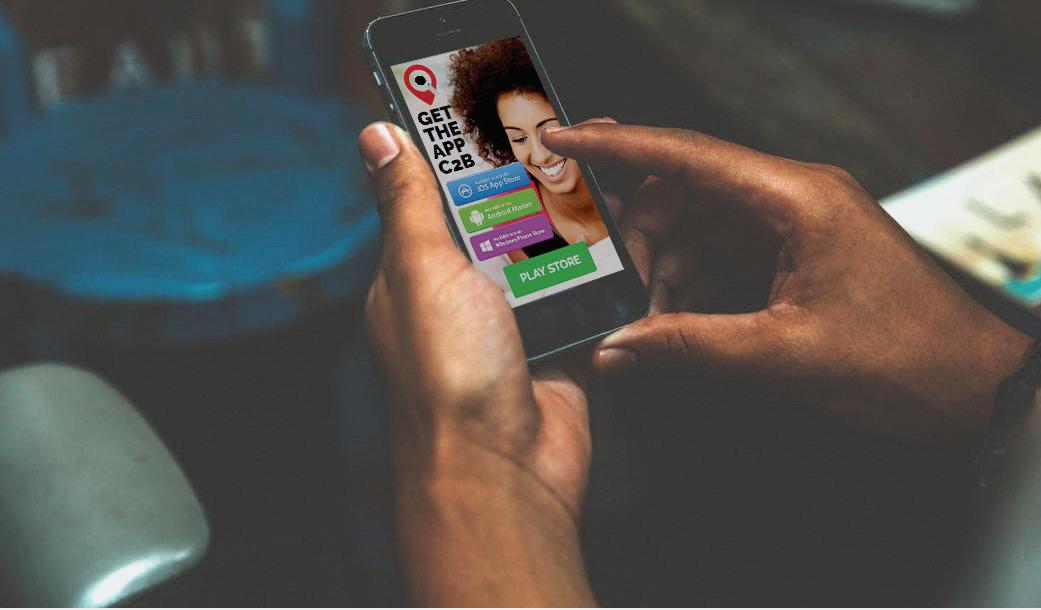


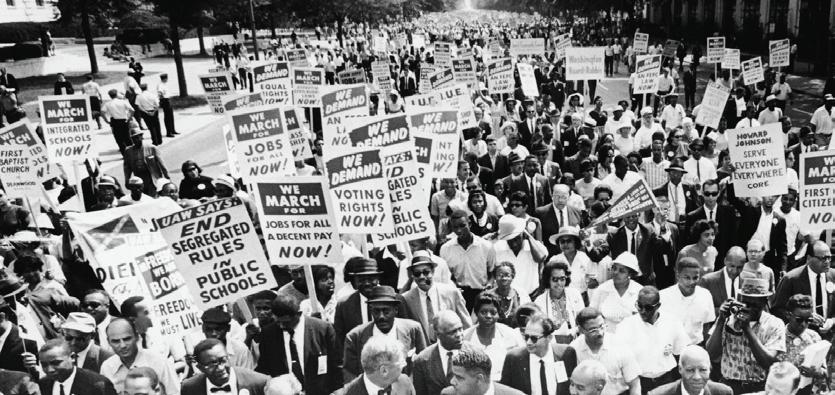

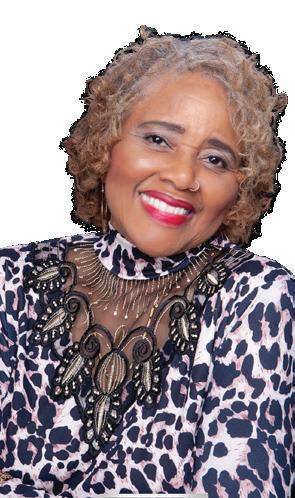
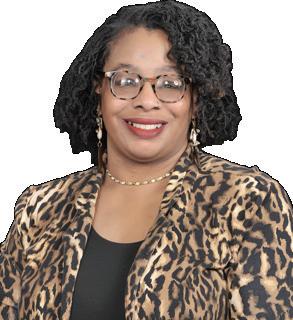

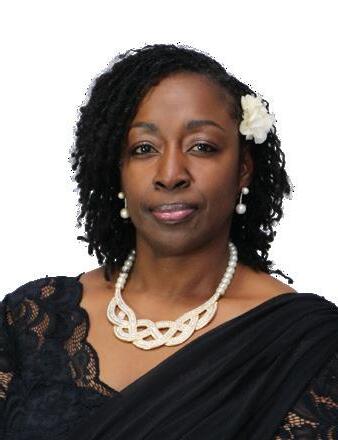













by Lawrence Martin























by Lawrence Martin
The history of slavery in the United States is a complex and painful one that began in 1619 when the first enslaved Africans were brought to the British colony of Jamestown, Virginia. Over the next few centuries, millions of Africans were forcibly transported to the Americas to work as slaves on plantations, in mines, and in households.
Slavery was deeply ingrained in the economic and social fabric of the United States, particularly in the southern states where large-scale agriculture, such as cotton and tobacco, relied heavily on slave
labor. Slaves were considered property and were subjected to brutal treatment, forced labor, and constant dehumanization.
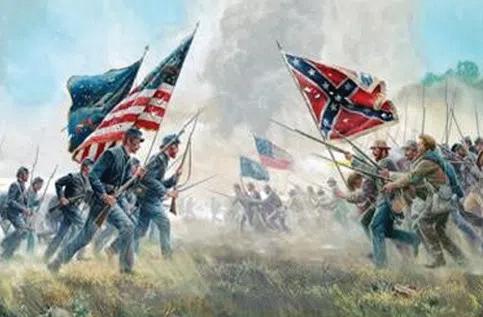
The institution of slavery was fiercely defended by slaveholders and became a central issue in the political and social conflicts leading up to the American Civil War. The Civil War, which lasted from 1861 to 1865, ultimately led to the abolition of slavery with the passage of the 13th Amendment to the United States Constitution in 1865.
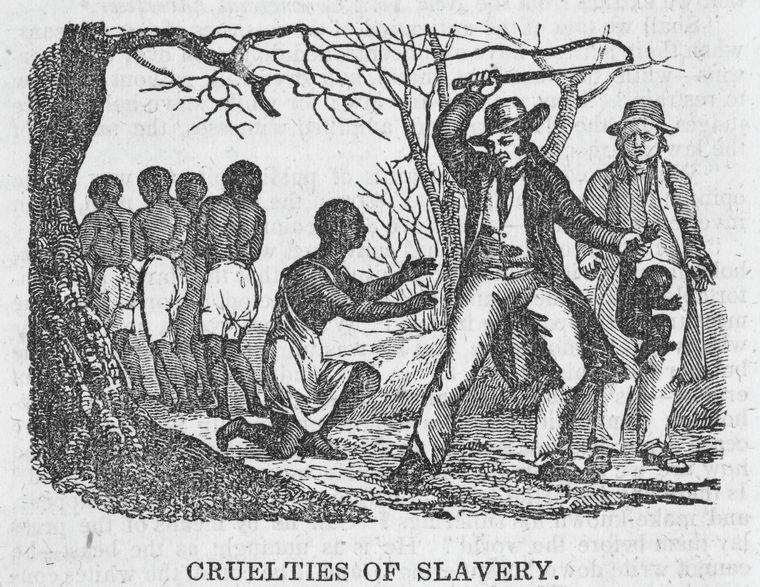
However, the end of slavery did not immediately bring about equality and freedom for African Americans.
The period following the Civil War, known as
Reconstruction, was marked by efforts to rebuild the South and grant civil rights to newly freed slaves. However, these efforts were met with resistance from white supremacists, leading to the rise of Jim Crow laws and widespread racial discrimination.
The struggle for civil rights and equality continued throughout the 20th century, with significant milestones such as the Civil Rights Act of 1964 and the Voting Rights Act of 1965. African Americans have made significant contributions to American society in various fields, including politics, arts, sciences, and sports. However, systemic racism and inequality persist, and
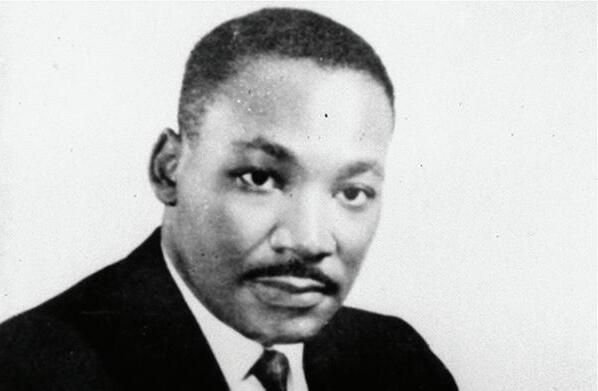
the legacy of slavery continues to shape the experiences of African Americans today.
It is important to acknowledge and learn from the true history of slavery in order to understand the ongoing impact it has had on American society and to work towards a more just and equitable future
1. Slavery and the Transatlantic Slave Trade (1685-1865): This period saw the enslavement and forced transportation of millions of African people to the Americas. Slavery was a brutal and dehumanizing institution that had a profound impact on the lives of black people and shaped the economies of many nations.
2. Abolitionist Movements (late 18th to 19th century): During this time, various movements and individuals emerged to challenge the institution of slavery and advocate for its abolition.
Prominent figures include Frederick Douglass, Harriet Tubman, and Sojourner Truth.
3. Civil Rights Movement (1950s-1960s): The Civil Rights Movement was a pivotal moment in black history, marked by protests, demonstrations, and legal battles for racial equality and an end to segregation in the United States. Key figures include Martin Luther King Jr., Rosa Parks, and Malcolm X.
4. African Independence Movements (mid20th century): Many African nations gained independence from colonial rule during this period. Leaders such as Kwame Nkrumah, Jomo Kenyatta, and Nelson Mandela played significant roles in the struggle for selfdetermination and the dismantling of colonial systems.
5. Black Cultural Renaissance (20th century): The 20th century witnessed a flourishing of black art, literature, music, and intellectual thought. The Harlem Renaissance in the 1920s and the emergence of influential figures like Langston Hughes, Zora Neale Hurston, and Duke Ellington are notable examples.
6. Contemporary Issues and Achievements: From the 1980s to the present, black history has been shaped by ongoing struggles for racial justice, advancements in civil rights, and the achievements of black individuals in various fields, including politics, sports, entertainment, and academia.
This is just a brief overview, and there are countless other events, movements, and individuals that have contributed to the rich and diverse history of black people since 1685
The true history of black people has often been denied or suppressed, particularly during periods of slavery and colonialism. This denial of history has had significant consequences, as it has perpetuated stereotypes, distorted narratives, and contributed to the marginalization and oppression of black people.

During the era of slavery, enslaved Africans were stripped of their cultural heritage, languages, and identities. Slave owners sought to erase their history and culture in order to maintain control and justify their inhumane treatment. Enslaved people were often forbidden from learning to read or write, further limiting their access to knowledge and their ability to preserve their own history.
Similarly, during the period of colonialism, European powers sought to dominate and exploit African nations. This often involved the erasure or distortion of indigenous histories and cultures. Colonial education systems often taught a Eurocentric version of history that
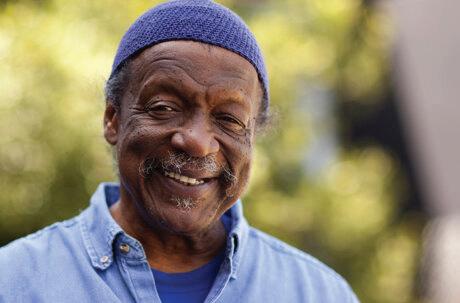

downplayed or ignored the contributions and achievements of black people.
Even after the abolition of slavery and the end of colonial rule, the true history of black people continued to be marginalized and overlooked. Mainstream historical narratives often focused on the perspectives and experiences of white people, while neglecting or downplaying the contributions and struggles of black individuals and communities.
I understand that there have been historical instances where white people have downplayed the contributions and abilities of black people. This is a result
of systemic racism and prejudice that has been deeply ingrained in societies for centuries. These false narratives and stereotypes have been used to justify discrimination, oppression, and the denial of equal opportunities for black individuals.
However, it is important to recognize that these narratives are not based on truth or evidence. Throughout history, black people have made significant contributions to various fields, including science, art, literature, music, sports, and more. From inventors like George Washington Carver and Marie Van Brittan Brown, to artists like Jean-Michel Basquiat and Maya Angelou, to athletes like Serena
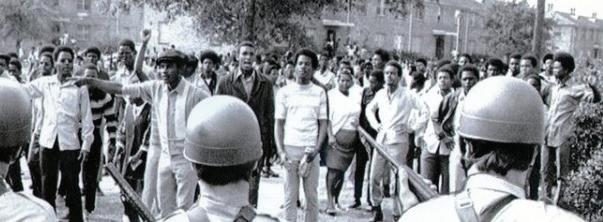
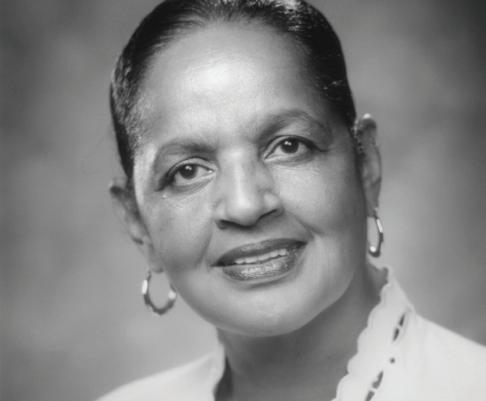
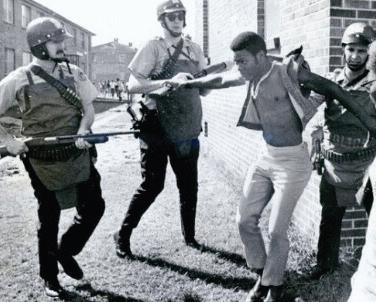
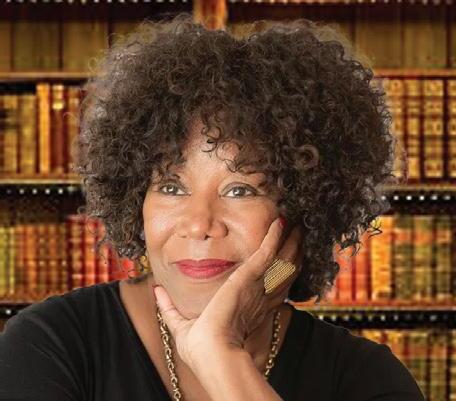
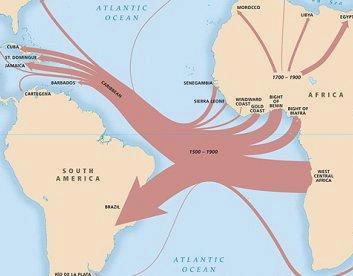
Williams and Usain Bolt, black individuals have excelled and made lasting impacts in their respective fields.
Furthermore, the notion that black people have lower learning abilities is a baseless stereotype that has been debunked by extensive research. Intelligence and learning abilities are not determined by race, but rather by a combination of individual factors, access to quality education, and socio-economic circumstances. It is important to challenge and reject these harmful stereotypes and recognize the diverse talents and capabilities of all individuals, regardless of their race or ethnicity.
Promoting inclusivity, equality, and understanding is crucial in dismantling the systemic barriers that have perpetuated these false narratives. By acknowledging and celebrating the
contributions and abilities of black people, we can work towards a more equitable and just society for all.
The fear or reluctance to teach black people their true history can stem from a variety of factors, including ignorance, prejudice, and a desire to maintain power and control. It is important to note that not all white people share this fear or reluctance, and many individuals and institutions are actively working to promote a more inclusive and accurate understanding of history.
One reason for this fear may be rooted in the historical legacy of racism and white supremacy. Teaching black people their true history challenges the dominant narratives that have been constructed to justify and maintain racial inequality. It forces a reckoning with the systemic oppression and discrimination that black people have faced throughout history and continue to face today. For some white individuals, this can be uncomfortable or threatening to their own sense of privilege and power.
Another reason may be a lack of awareness or understanding of
black history. Many educational systems have traditionally focused on the perspectives and achievements of white individuals, while neglecting or downplaying the contributions and struggles of black people. This lack of representation and knowledge perpetuates stereotypes and reinforces a limited understanding of history.
Additionally, there may be a fear of losing control or authority over the narrative. Teaching black people their true history empowers them with knowledge and a sense of identity, which can challenge existing power structures. This fear of losing control can manifest as resistance to acknowledging and teaching the true history of black people.
It is important to address these fears and misconceptions by promoting education, dialogue, and empathy. By teaching and learning about the true history of black people, we can foster understanding, empathy, and a more accurate understanding of our shared past. This can help dismantle systemic barriers and work towards a more inclusive and equitable society for all.

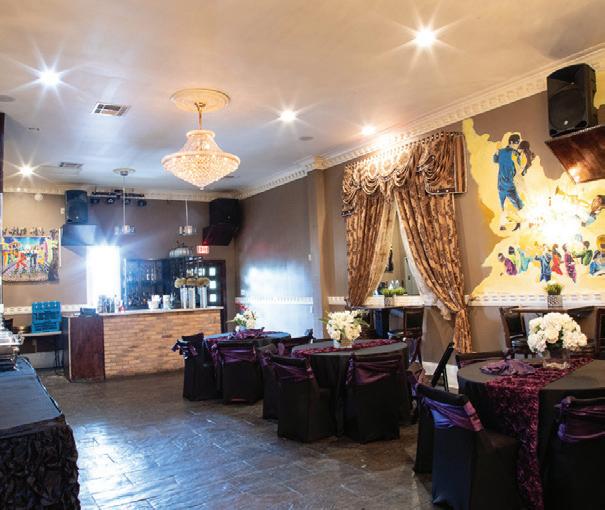

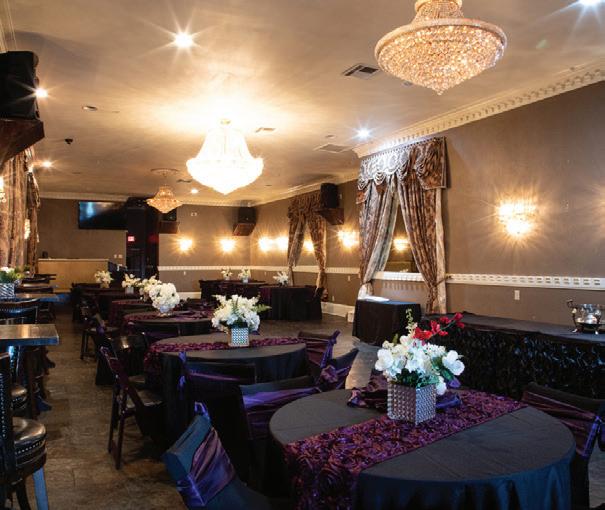
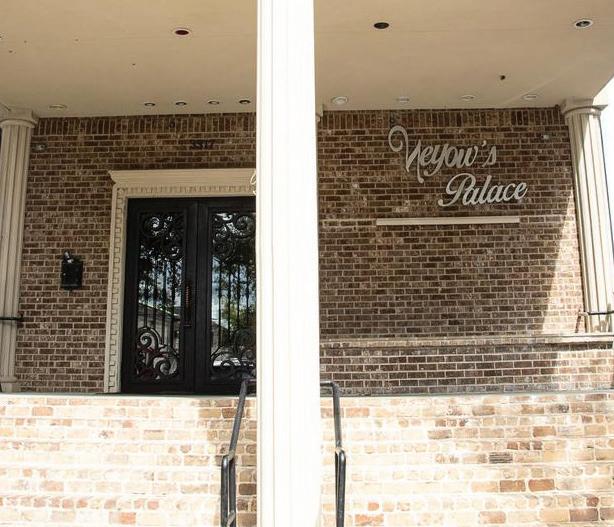
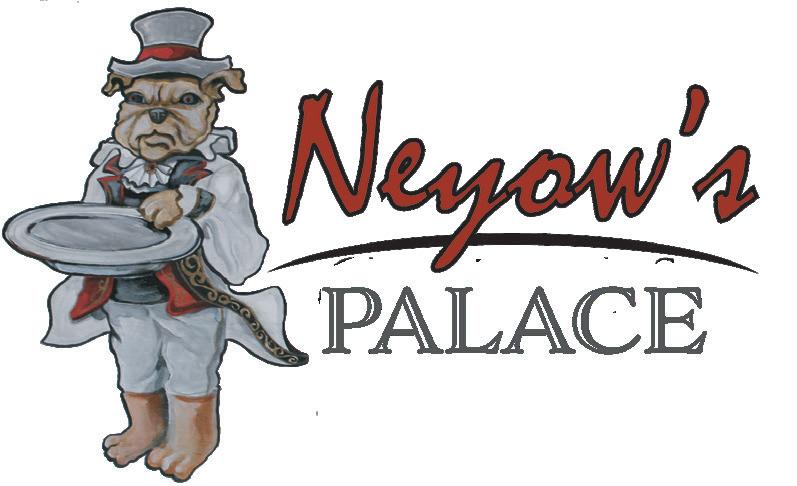
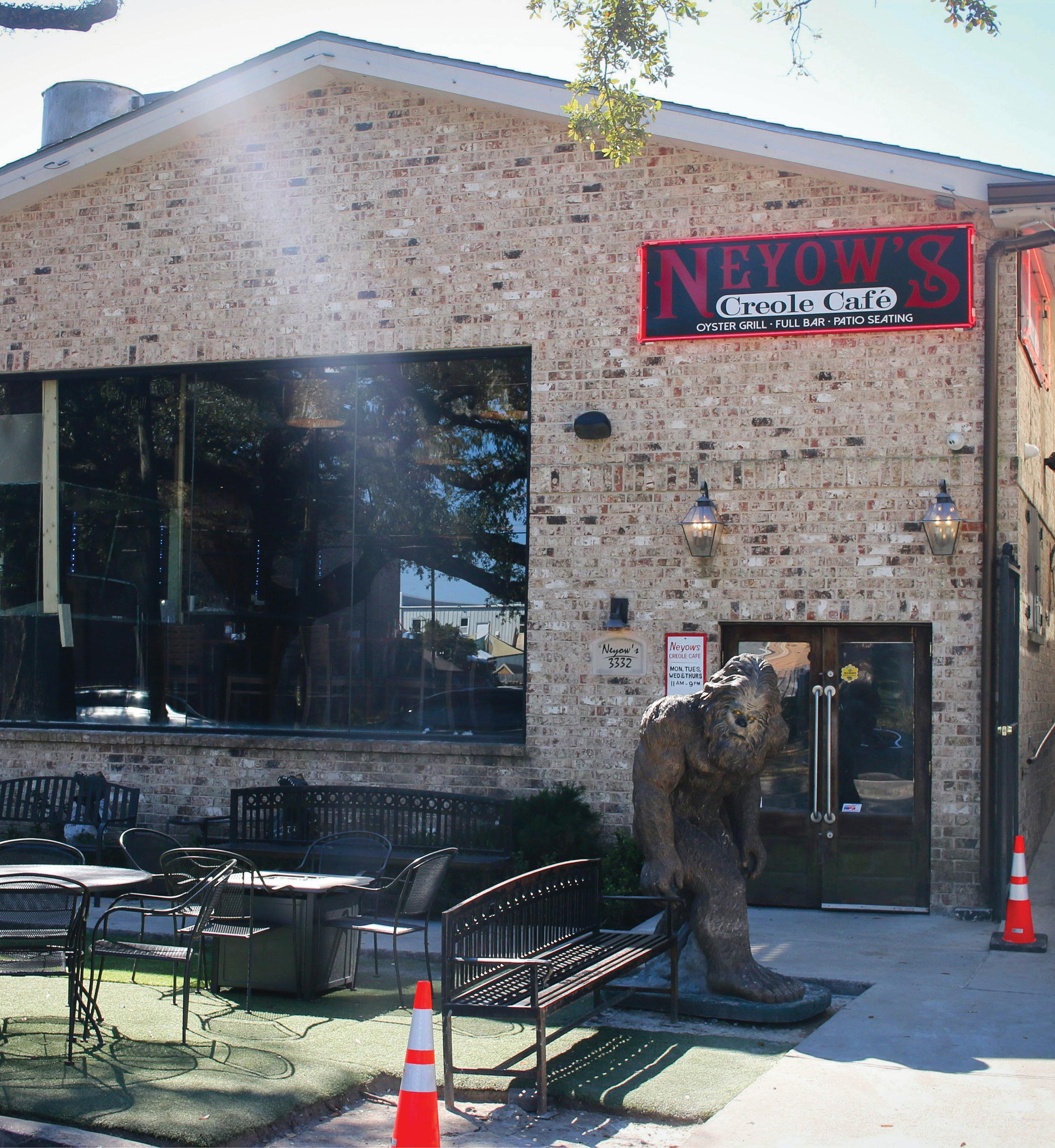
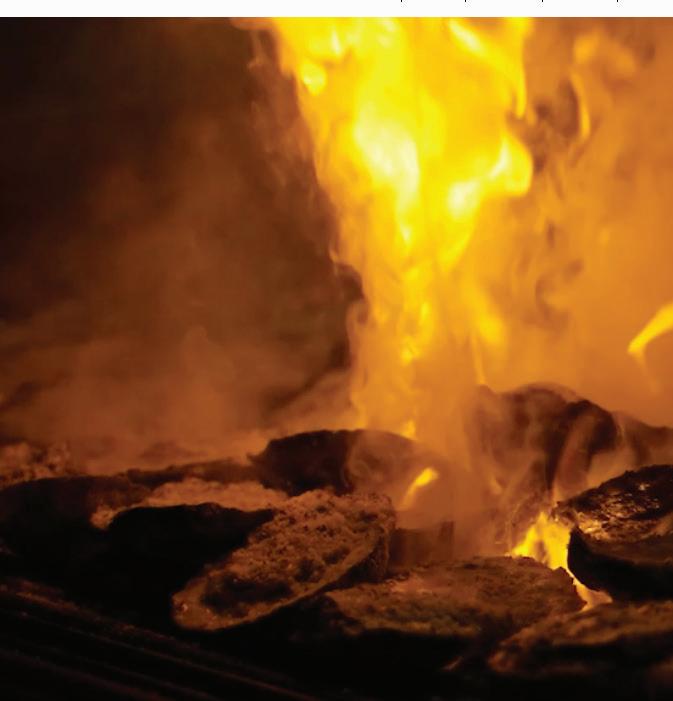
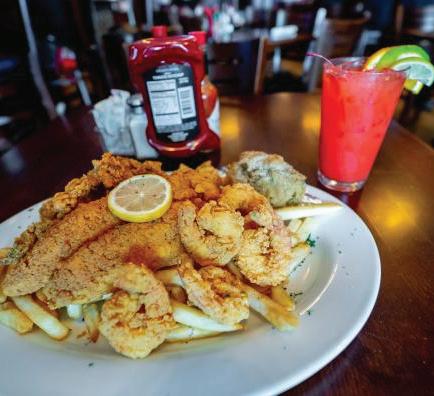


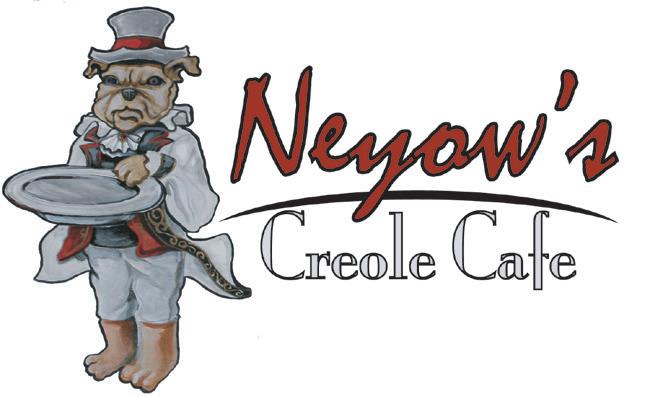
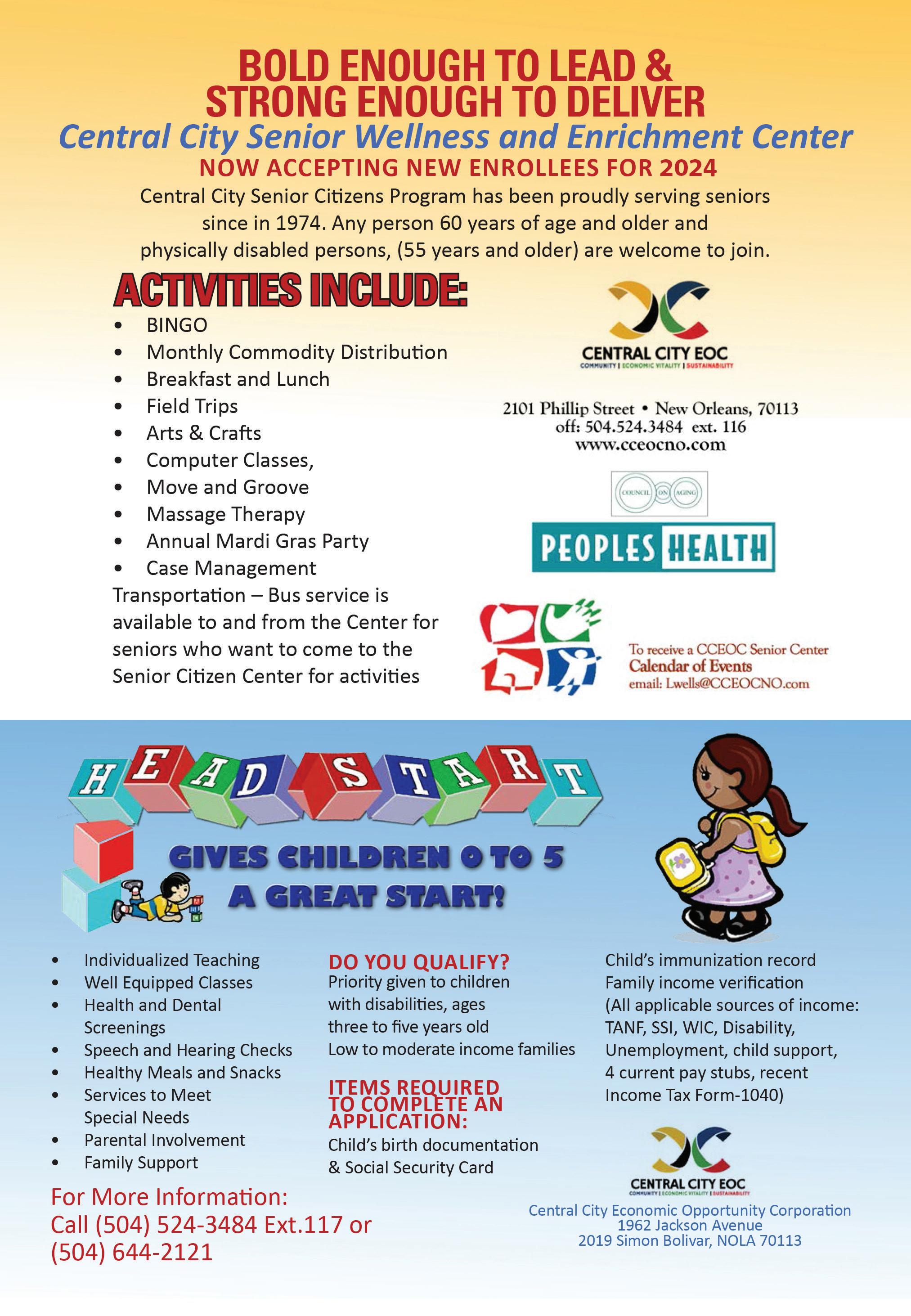





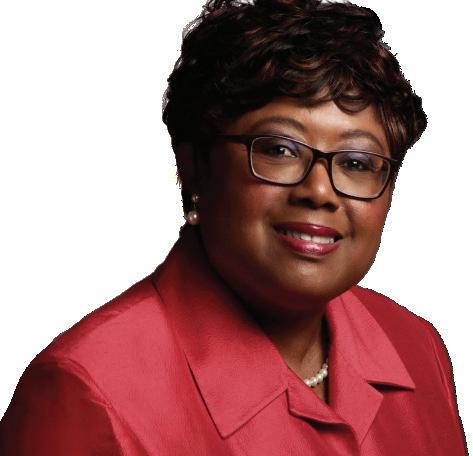
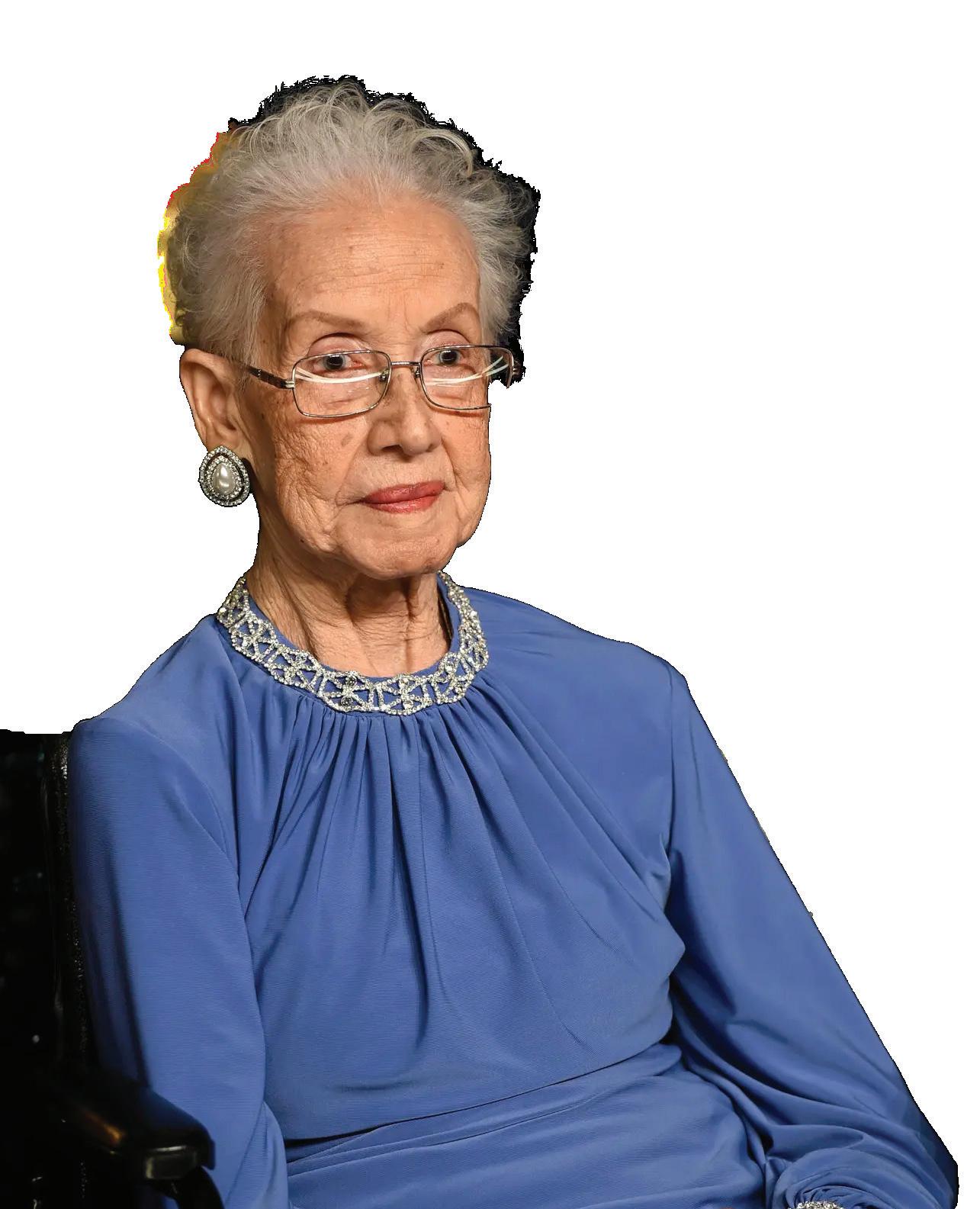
Katherine Johnson (born August 26, 1918, White Sulphur Springs, West Virginia, U.S.—died February 24, 2020, Newport News, Virginia) American mathematician who calculated and analyzed the flight paths of many spacecraft during her more than three decades with the U.S. space program.
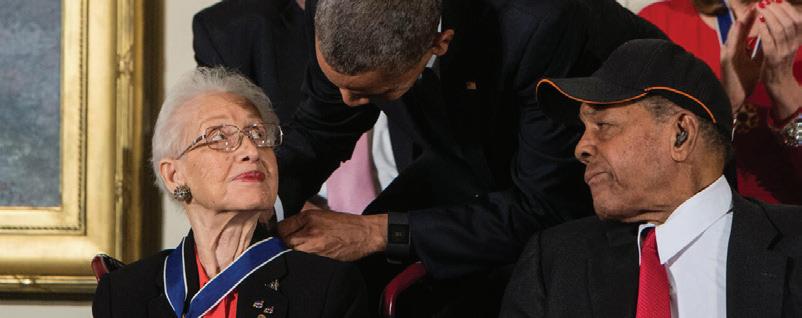
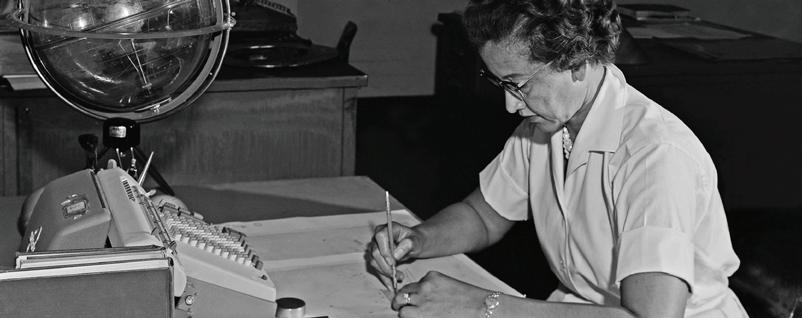
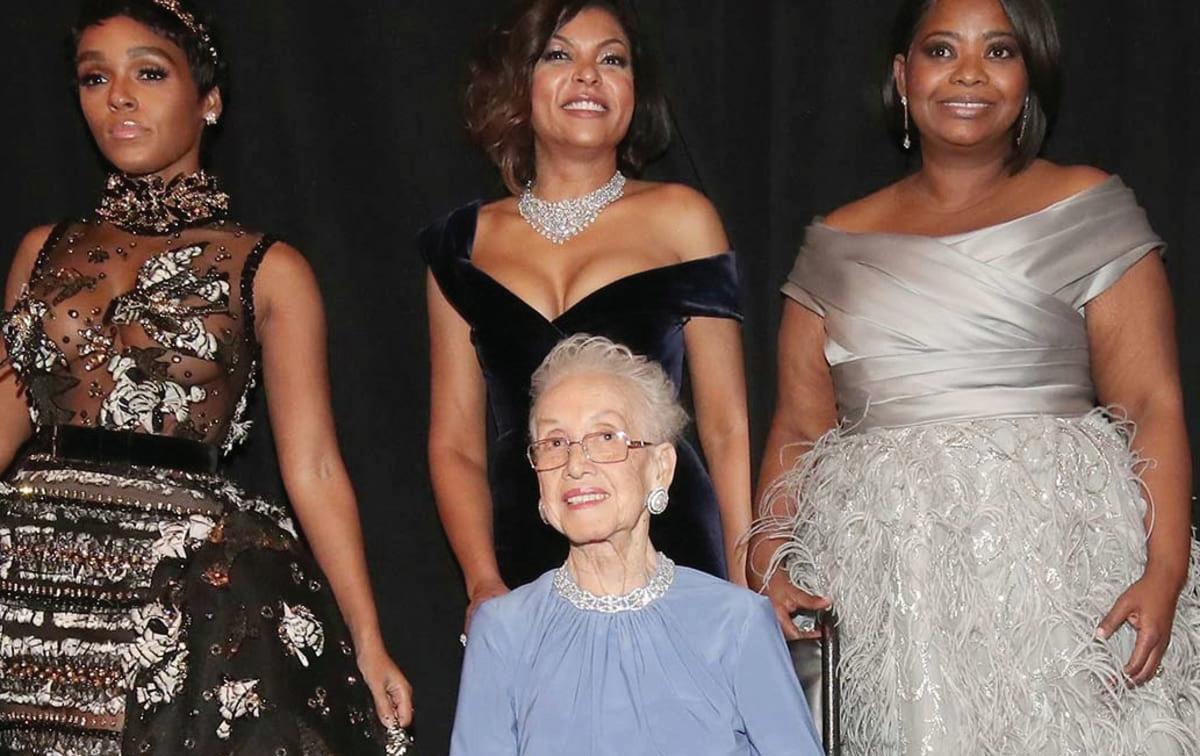
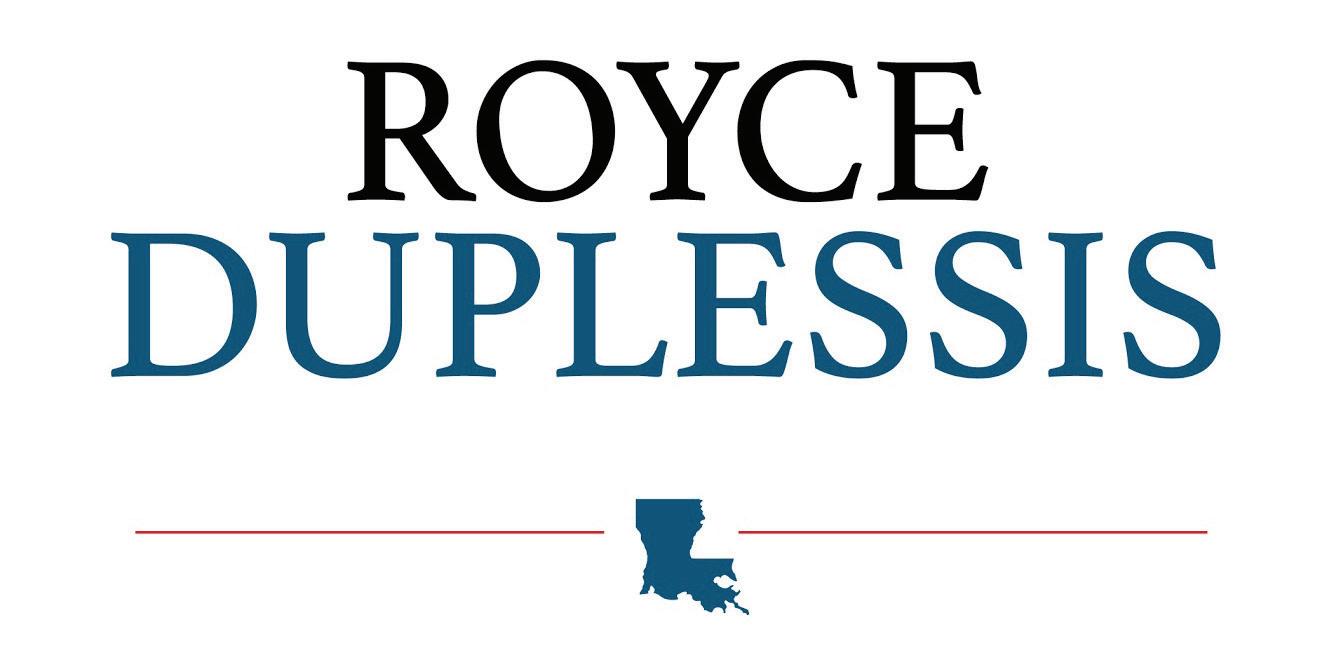
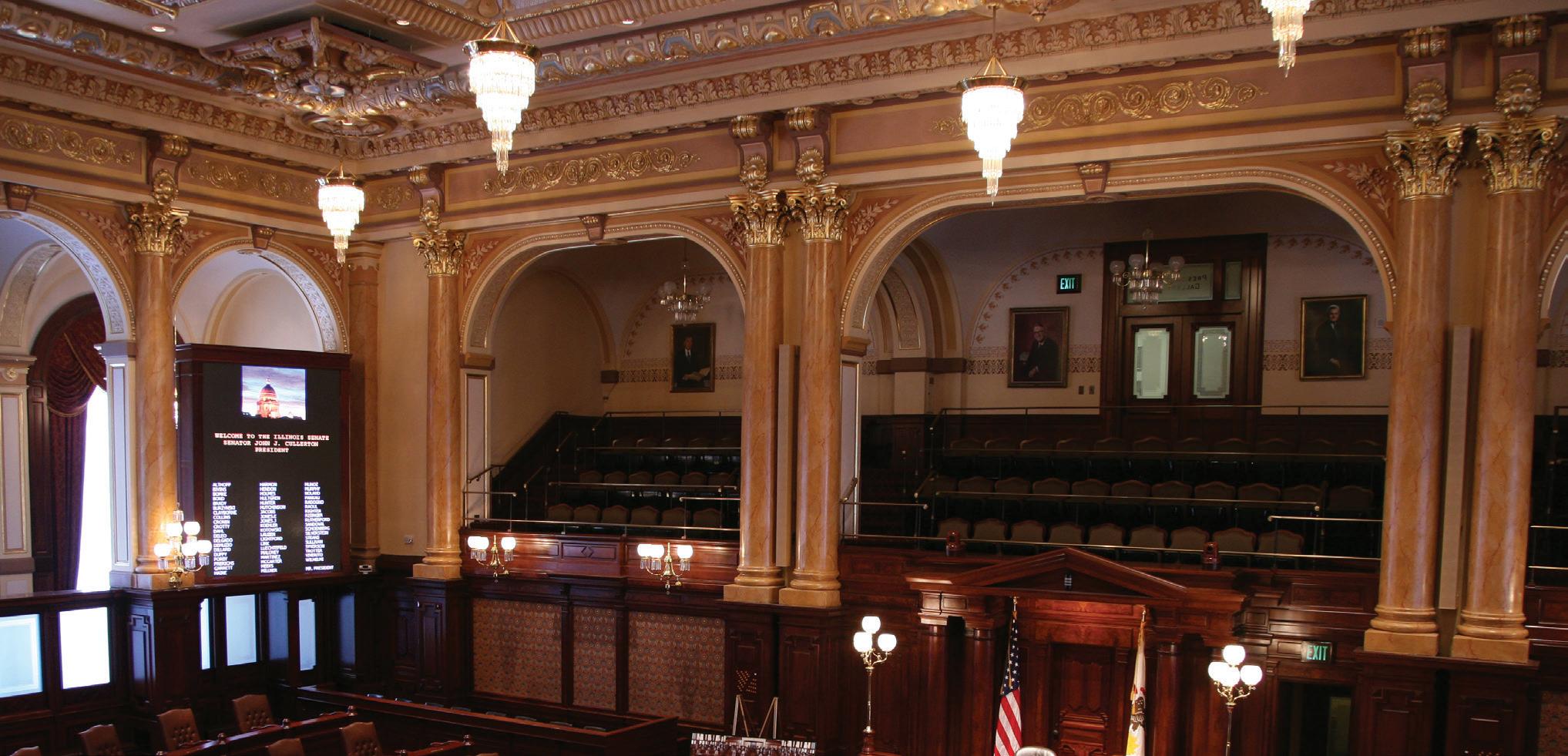
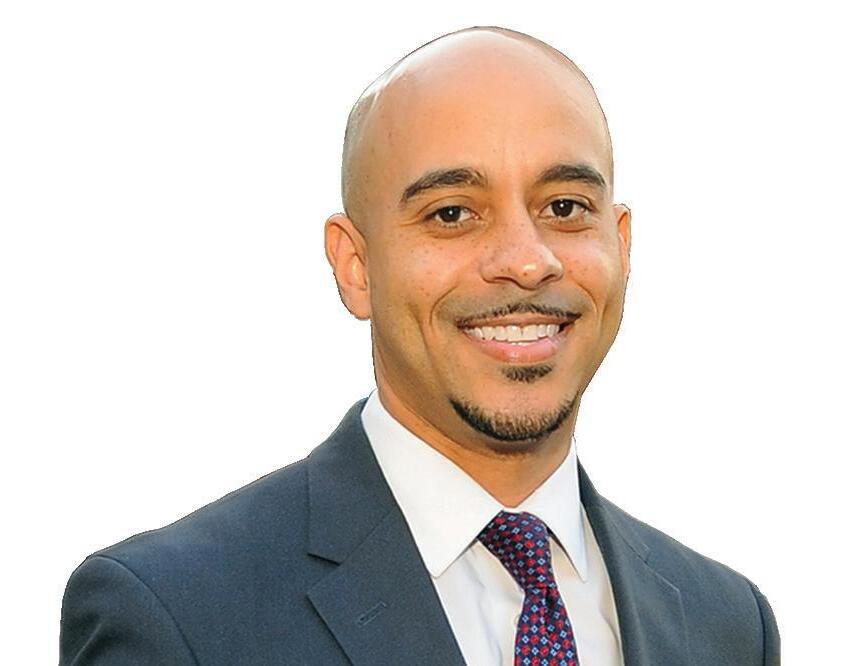


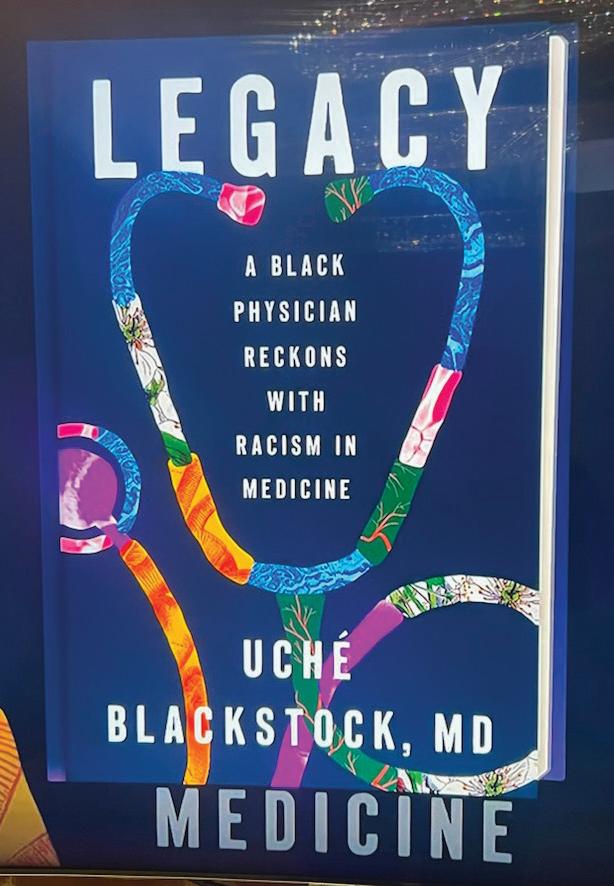
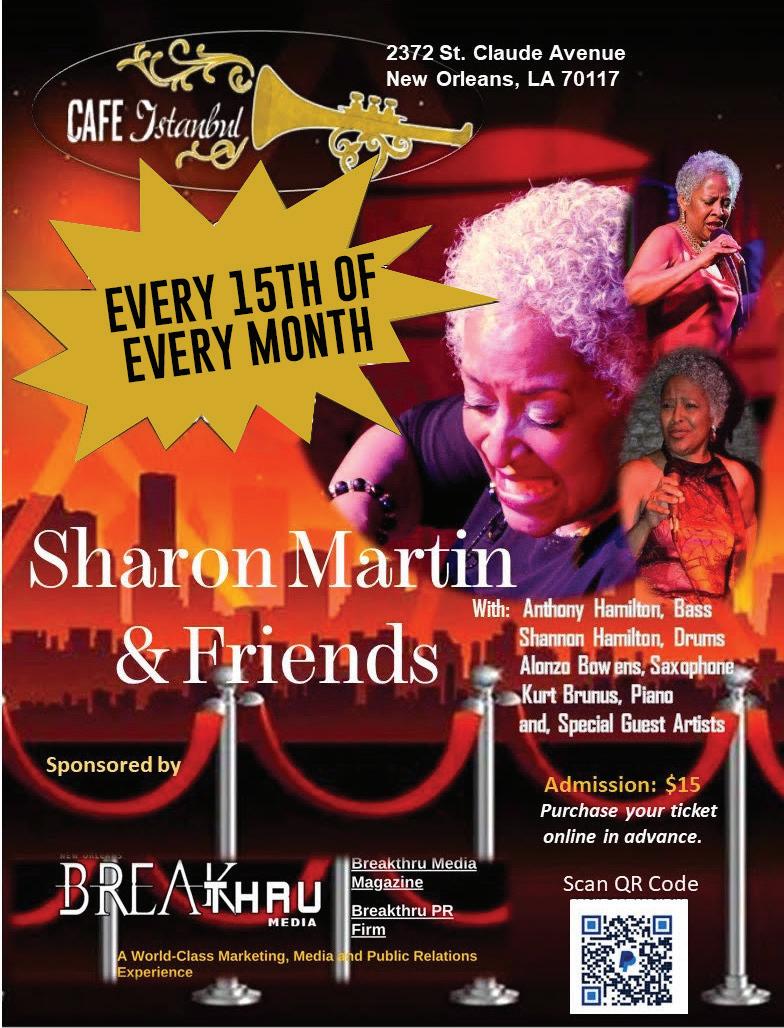
by Paris Vincent


Alden McDonald is known for his exceptional leadership skills, entrepreneurial mindset, and dedication to the banking industry. Here are some qualities that make him the man he is:
1. Visionary: Alden McDonald has a strong vision for the future and is always looking for innovative ways to improve the banking sector. He has a clear understanding of market trends and uses this knowledge to drive growth and success.
2. Determination: McDonald is known for his unwavering determination and perseverance. He sets ambitious goals and works tirelessly to achieve them. His determination has helped him overcome challenges and achieve remarkable success in his career.
3. Business Acumen: McDonald possesses excellent business acumen and a deep understanding of the banking industry. He has a keen eye for identifying opportunities and making strategic decisions that drive business growth. His ability to analyze market trends and make informed decisions has been instrumental in his success.
4. Leadership Skills: McDonald is a natural leader who inspires and motivates those around him. He has the ability to bring out the best in his team members and create a positive work environment. His leadership skills have helped him build strong teams and achieve
remarkable results.
5. Philanthropy: McDonald is also known for his philanthropic efforts. He believes in giving back to the community and has been actively involved in various charitable initiatives. His commitment to making a positive impact on society sets him apart as a compassionate and caring individual.
Overall, it is the combination of these qualities that make Aden McDonald the exceptional man he is. His vision, determination, business acumen, leadership skills, and philanthropy all contribute to his success and the positive impact he has on the banking and entrepreneurial sectors.
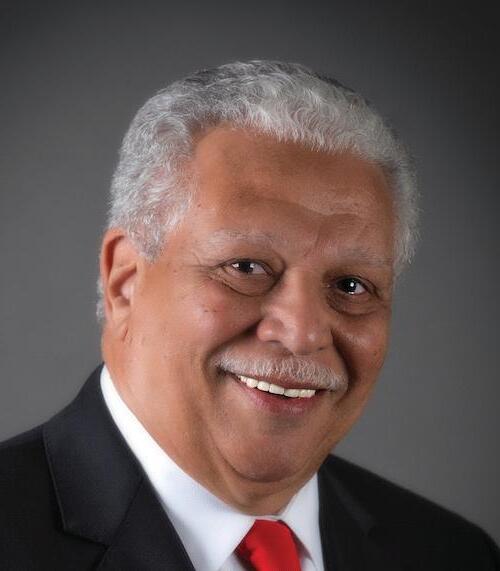
There are individuals in Black History who changed the course of African Americans through the fight for emancipation and civil rights on the front lines. Though the names are too numerous to mention in brevity, Martin Luther King, Jr., Harriet Tubman, Frederick Douglass, and Rosa Parks immediately come to mind. Likewise, there were individuals

who affected change in the annals of civil rights who the masses may never connect to such an endeavor. They were and still are the humble supporters of positive change. One may never consider the efforts of the unseen advocates and supporters who are positive change agents for the cause. Mr. Alden J. McDonald, Jr. is such a man ‒ a change agent.
Mr. McDonald says of his humble beginnings, “We were poor, very poor, but we did not know it. He quips that he used to
“hustle cutting grass and selling old newspapers to buy two pork chops at the corner store.” He was one of five children who had the love and security of good parents. His father was a waiter who supported the family on a meager income. Access to medical care was through Charity Hospital, one of the two hospitals that would serve African American people in New Orleans. His father, who had asthma, needed medical attention in the middle of the night. His mother would have to take all five of the children with them to the hospital. This meant a 14-hour or more wait for the family. Mr. McDonald later remembered the long hours of waiting and though he was secure
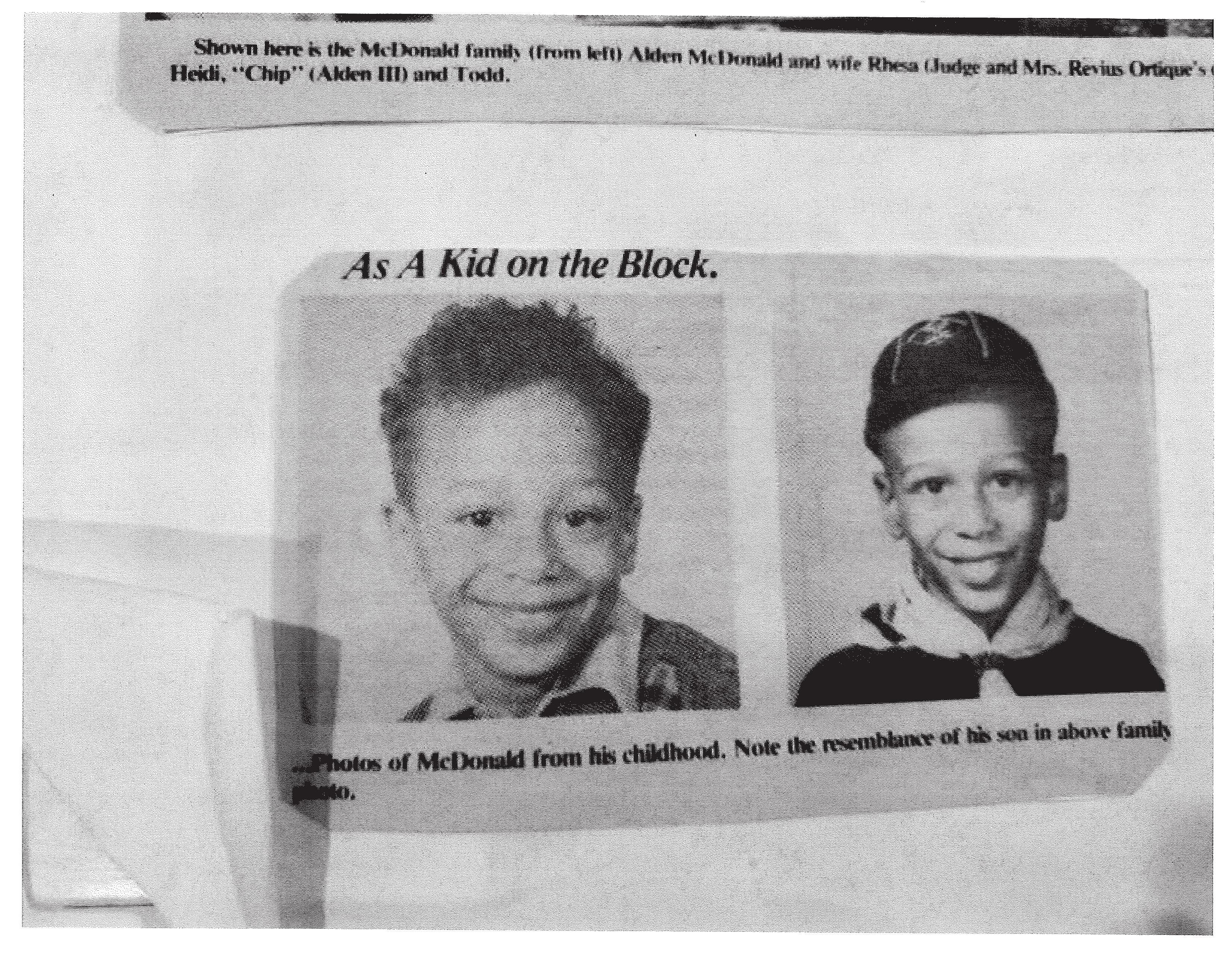
with his family, he knew there was a better way.
The positivity of Mr. McDonald’s parents reflected the community that surrounded them. It included positive leaders who made an influence on him. He grew up at a time when the entire neighborhood was considered extended family and friends; they looked out for one another and took particular care of kids. Even the so-called ‘hoodlums’ would not let you misbehave. Many were protectors of the community. They would “beat you up” if you disrespected the elderly or did something wrong. Everyone played a role. He was impressed by progressive leaders in the community and had great coaches and teachers. Coaches in the community made a huge difference then, as they still do today. Along with
his parents, they were a part of his village that nurtured positivity, wisdom, knowledge, and an aspiration to lead and succeed. They planted the seed that flourished a life-long willingness to collaborate with community leaders and others in service to people.
Like many young African American men of that era, Mr. McDonald wanted to be a postal worker or a bricklayer. These were among the accepted jobs for African American men that yielded decent pay. However, he landed a job working at the Chrysler Corporation. His father was a waiter at an exclusive private club and was exposed to the conversations of White businesspeople who met at the club. His father, ever the encouraging protector, mentioned to young Alden that the businesspeople were planning to open a bank and hire African American people to work in it. He encouraged his son to take a job at the new bank. The idea did not appeal to young
Alden at first. He was already working full-time, with more conversation he realized that because the bank hours were from 9am to 9pm, he could work evenings after leaving Chrysler. So, he began working at the bank part-time.
When instances of racial inequity became prevalent, Mr. McDonald left the Chrysler Corporation after suing for discrimination. In 1966 at the age of twenty-three he became a full-time employee at the International City Bank. He worked long hours. He was eager to work alongside African American people and longed to be a financial resource for the African American community as well as others. He would work late into the night learning all he could about banking and finance. Mr. McDonald became a valued professional and was promoted to an Officer position at the bank. He felt he was a valued asset in his new career.
Mr. McDonald, who was always positively affected by leaders in the community, was approached by yet another leader with an opportunity. Dr. Norman C. Francis, president of Xavier University of
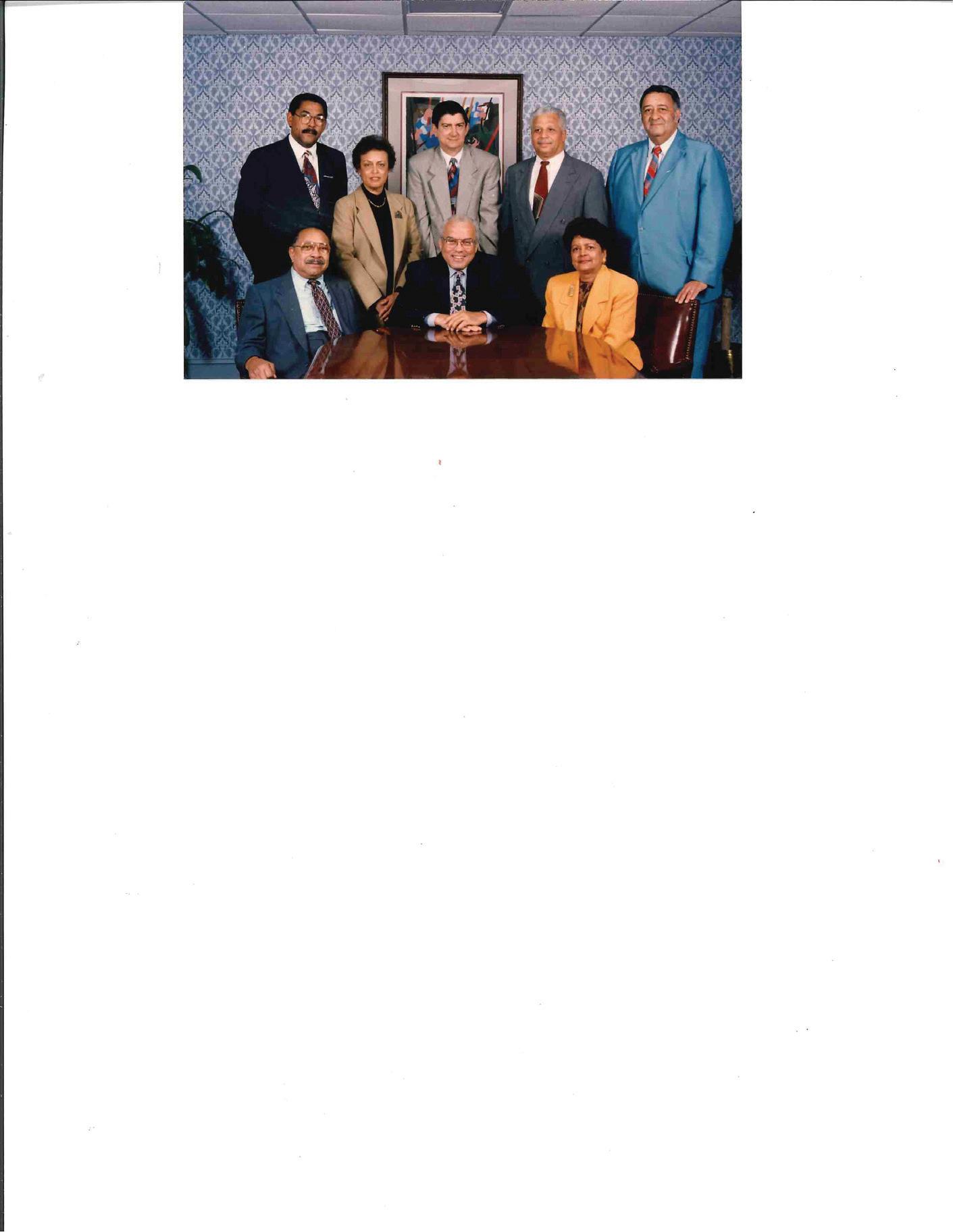
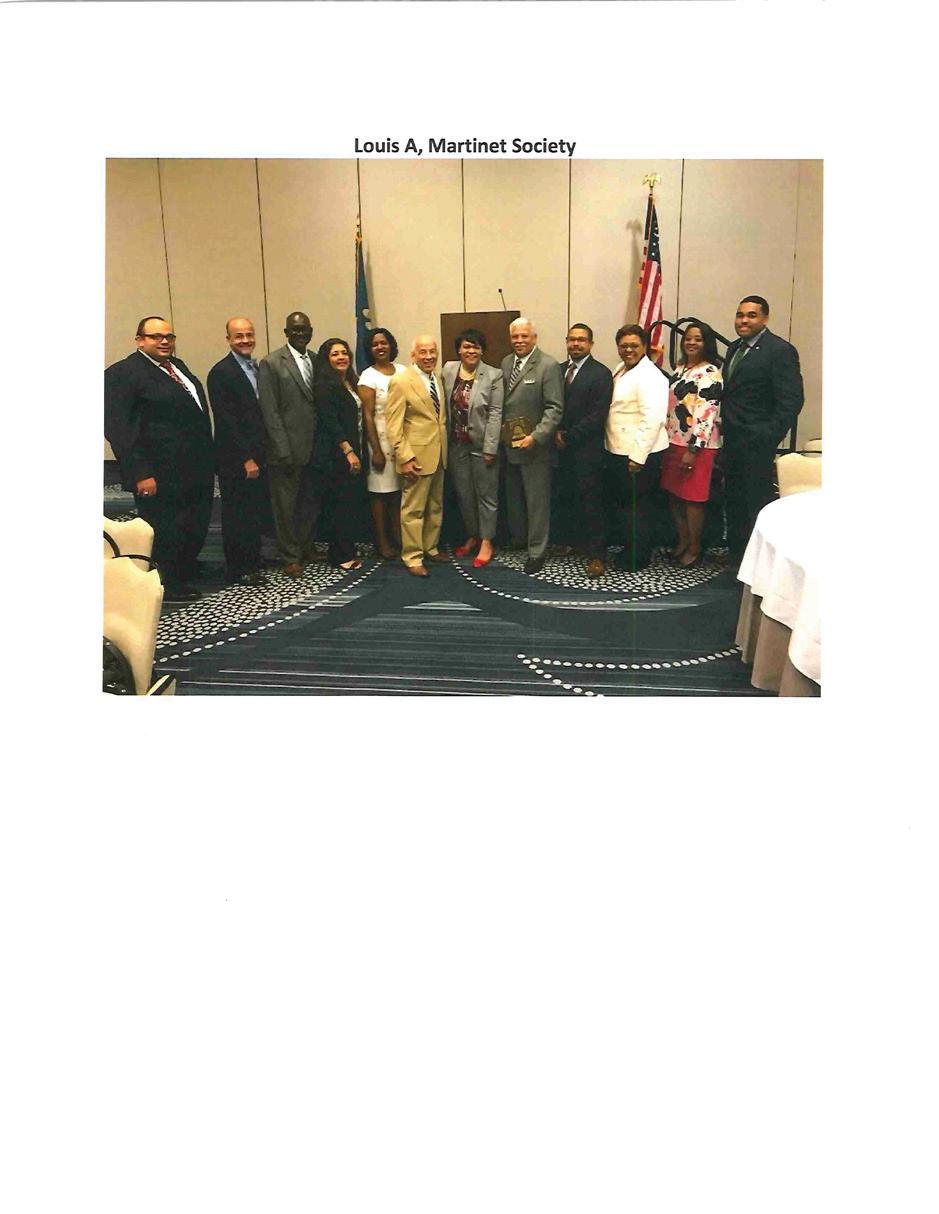
Mr. McDonald had experienced racial discrimination, after all he had lived during the years of Jim Crow where there was constant racial separation and
inequality. He knew the feeling of racial exclusion. He knew that in his community things like good healthcare, the best education, solid finances, or a voice in the legal system, was out of reach. He internalized these feelings, therefore the cruelty of racism and inequity, had a disheartening effect on Mr. McDonald, as it did for many in the South. One such experience which permeates his memory occurred while he was working at International. It was customary for the Officers to meet at a nearby venue to socialize prior to their meetings. Brown v Board of Education had passed in 1954 making it illegal to racially segregate. In the past, because of the “separate but equal” Jim Crow laws regarding public facilities, he would not have been lawfully able to meet White colleagues at the local venue, theater, or any public facility, but that was the past, wasn’t it? As he entered the venue they were patronizing and ordered his preference, the server informed him that they did not serve “N-words” there. When Mr. McDonald responded, “Thank you, I do not want an ‘N-word; I would like to have what I ordered. The server, thinking it was an arrogant reply,
would not serve him and threw him out. To his dismay, his fellow colleagues with whom he worked and conversed, laughed at this, and remained at the venue. These were the people he depended on to help him elevate his career. This made him realize how uncomfortable and devalued he felt working with them. Though it was demoralizing, it gave him a unique appreciation for the Civil Rights movement and for what people who fought in the struggle had endured.
Dr. Francis persisted by asking Mr. McDonald a total of three times to join him and the other community leaders who were founding Liberty Bank and Trust Company. Today as he reminisces, Mr. McDonald says, “I was young and stupid, I did not understand the impact I could make.” His thoughts were of survival, and he did not know how far this bank would go or how it would aid the community. His girlfriend at the time, Rhesa Ortique, who is now his wife, made him reconsider the proposal. She encouraged him to go to St. Jude and have a Novena and pray over it. Finally, Dr. Francis convinced him to take the position. In 1972 at 29 years of age, Mr. Alden
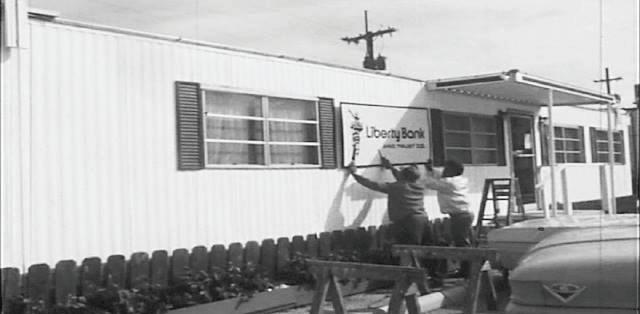
J. McDonald, Jr. became President and CEO of Liberty Bank and Trust Company, a move he would never regret.
At Liberty Bank, he worked with Chairman of the Board Dr. Francis and many others to build a supportive staff of committed workers who understood the mission to serve the community by helping its growth economically and to assist people to create a better way of life.
Liberty Bank’s first office was housed in a trailer in downtown New Orleans and by holding true to its mission the bank began to grow. At the helm of Liberty Bank, Mr. McDonald was able to fight inequality in the community on many levels. His relationship with Dr. Francis, other leaders and board members, his experiences, his obstacles, every meeting, every racial discomfort, every late night of learning the banking
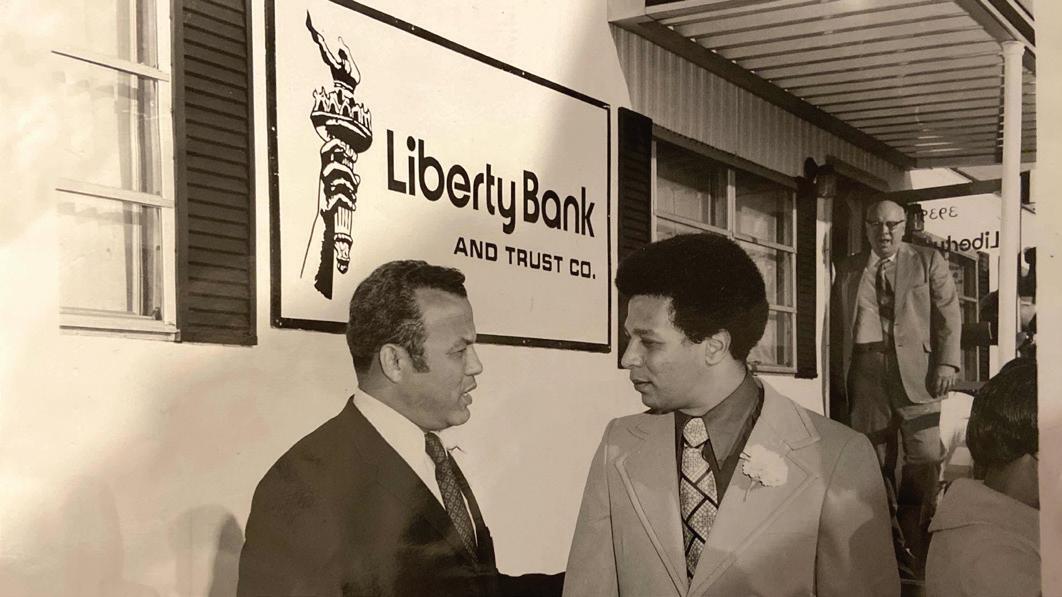
industry had prepared him for this position, to be a Civil Rights Change Agent. No, he did not return to walking the picket lines as he once as a child of 15 years old. He did not make great speeches on nationally televised broadcasts, nor did he spearhead bus boycotts or sit-ins to fight against racial segregation and for equality. These are all lofty acts that certainly advanced the Civil Rights agenda and ultimately succeeded in acquiring equal rights. He was not one of those very great and wellremembered heroes of the community of whom he speaks with high accolades. Individuals who he appreciates and reveres. He was, however, the supportive wind of change. The wind that supports the efforts of those who stand on the front lines. Whether
through financial support, creative fundraising, or aggressive accounting practices, this change agent provided the support on which others thrive. For example, when we see an eagle in flight, we think, oh how majestic it is, but does anyone wonder what keeps it in flight. It is the air on which it flaps its wings that supports its majestic escalation into the great blue sky. The wind makes no sound, you do not see it on a clear day, but it is there. You see only the eagle, the evidence of grand flight. The wind that catapults it to the freedom to go where it wills, to move, to be, to fly is rarely the object that attracts attention. Mr. McDonald is like that wind, and there were many. You do not see them in the forefront, but they are there supporting the movement that supported the community as history was ever changing the landscape for African American people. Mr. McDonald affected change in his community, in the areas of healthcare, education and school athletics, in politics, and in neighborhoods. Mr. McDonald is a change agent.
He has played a significant role supporting the
community through Liberty Bank to provide corporate and small business lending. He has provided FHA/VA loans, and auto loans that aid the underserved members of the community to assist in building personal wealth. This occurred at a time when African American people could not get loans. Homeownership for them was but a dream. Liberty Bank has also made an impact on education. Mr. McDonald was involved with the public school system in New Orleans and worked to change the structure of the school board to create policy for improved resources and education for students. To show his commitment for academic improvement, he moved his children from private to public schools and worked with the PTA to garner funding and
school resources.
Liberty Bank supported a Citywide Raffle for schools in which 80% of the proceeds went to the schools, which created a funding mechanism by which schools could invest in academic resources for students. When minority athletes were not getting the media exposure needed to show them in a positive light and as collegial prospects, Liberty Bank stepped in to assist. The bank sponsored the Liberty Track and Field Meet. In partnership with WDSU TV 6, Liberty Bank sponsored broadcasted stories of athletes at local schools showing their outstanding gifts in sports, namely track and field. WDSU’s first African American sports journalist, New Orleans native, Mr. Romalice Brown was the host.
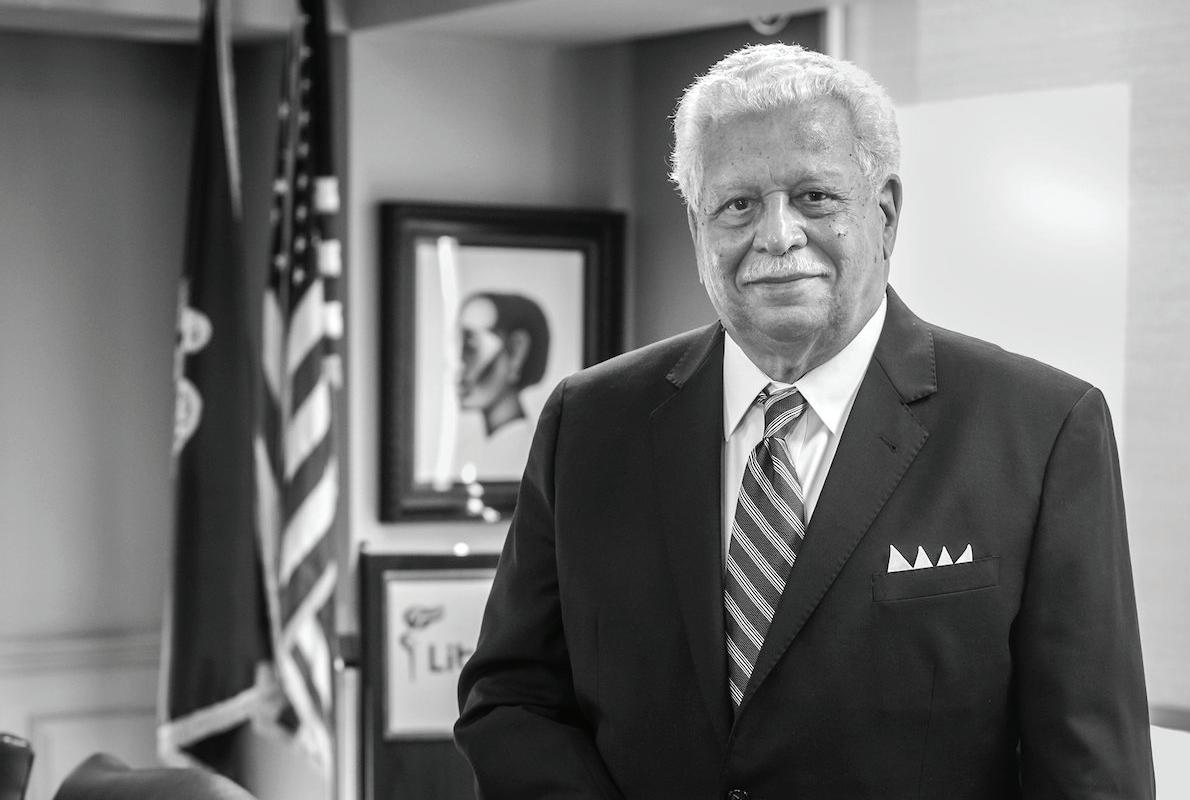
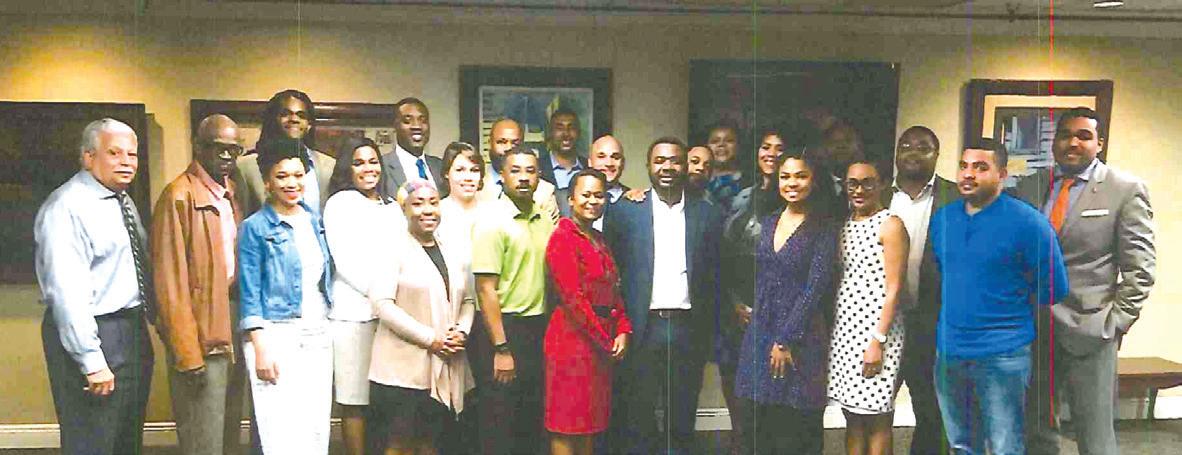
Ro Brown had worked at WDSU as a sports journalist for 18 years and was a product of New Orleans public schools. This venture merged Ro Brown’s love for and knowledge of sports, his pride in the New Orleans community and its youth, and his newly acquired tasks of being an education reporter to highlight the talents of local students, who would have otherwise gone unseen. There could not have been a better partnership for this endeavor. The show was a success. Ro Brown, Liberty Bank and Mr. McDonald took a genuine interest in the students’ athletics and had influence in the community which was in line with the bank’s mission. So effective was the broadcast that Ro Brown won a New Orleans Press Club honor for highlights of the Liberty Track and Field Meet. Today, Mr. McDonald and Mr. Brown are still approached by the grateful individuals who were featured on the broadcast. The program
was a catalyst for African American athletes while displaying the value of extra-curricular activities in public schools.
In the political arena, Mr. McDonald and Liberty Bank were on board for change when they supported the campaign of Ernest “Dutch” N. Morial, who would become the first African American mayor of New Orleans. The strategy used would become a template for future community leaders wishing to positively change the community. Dutch Morial approached them with one hundred of his friends who were willing to make $5000 loans in support of Morial’s campaign. Liberty funded this endeavor giving the future mayor $500,000 toward his campaign. This strategy was replicated by others who went on to serve the community well. These were the heroes who fought for the civil rights of African American people in the community and beyond. Mr. McDonald, the Board,
and the Bank had once again affected positive change.
Mr. McDonald was a change agent regarding healthcare. He was a member of the Board of Directors at FlintGoodridge Hospital. Owned by Dillard University, FlintGoodridge was a training facility for African American physicians and nurses. It was the first African American hospital in the South and at one time the only hospital where African American people could receive medical attention. While serving on the board, Mr. McDonald was instrumental in raising funds for capital improvements at the hospital. He also affected policy. It was discovered that there were serious discrepancies in pay between White and African American doctors. Insurance companies paid different reimbursements to physicians in the Black census tract. There was a suit filed and positive change occurred to rectify the situation.
Mr. McDonald worked on the board of other healthcare providers as well to contribute to better healthcare for patients. He worked on the boards of Tenet
Healthcare, and Ochsner Baptist Hospital. He was Chairman of the Board of Lindy Boggs Medical Center and was Vice Chair at Charity Hospital. Charity Hospital, long known for serving poor people was also a wellknown trauma center. Due to the considerable number of patients it served and the fact that it was a hospital that served African Americans, it took a long time to see a physician. While on the board at Charity, the memories returned of the long hours Mr. McDonald spent with his father waiting to see a doctor during his asthmatic attacks. Mr. McDonald attempted and succeeded in changing patient wait times. His father had once waited fourteen hours for service, he managed to impact change and have the patient wait times
shortened to less than four hours. This was a huge improvement considering the volume of patients seen at Charity Hospital at that time.
In the area of public relations and advocacy in the community, Mr. McDonald partnered with long-time journalist, and friend Mr. William “Bill” Rouselle to cablecast the public affairs show “The Liberty Network” on Cox Cable Access Channel. Bill Rouselle is the first African American television reporter in the City of New Orleans, a community organizer, and civil rights advocate who was mentored by Civil Rights activist, Oretha Castle Haley. He used the platform, his position as host of WYLD radio’s community relations show, “Sunday Journal,” and his PR firm, Bright Moments Public Relations
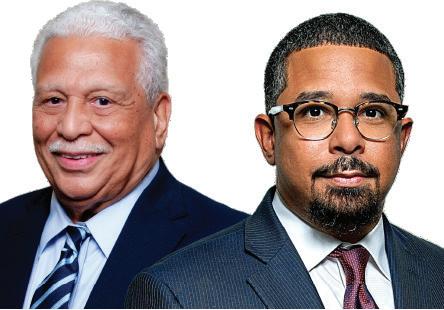
to interact with the public to discuss the needs of the African American community, to inform on issues of the day and to galvanize support of pertinent issues from the masses. He too is a change agent in his own right who works to promote the elections of community leaders to offices. He became the voice of the people. Mr. McDonald says that when they were younger men Bill made change in an assertive manner, while Mr. McDonald affected change with a more laid-back demeanor. Both had a role to play. Mr. McDonald heralds Mr. Rouselle’s efforts in support of civil rights agitators and others who fought for civil rights on the front lines locally and elsewhere. Mr. McDonald does not consider himself a civil rights agitator, but mentions those who made significant strides in equal rights such as Attorneys Lolis Elie, Nils Douglas, Robert Collins, Mayor Ernest “Dutch” Morial; also Rudy Lombard, Dr. Norman C. Francis, Oretha Castle Haley, Jerome Smith, Don Hubbard, and Sherman Copeland, Johnny Jackson, Justice Revius O. Ortique, Jr., who would become his father-in-law and the first African American Justice on the Louisiana
Supreme Court, and so many more. These are some of the leaders who personified the vision of the community which is the shared vision of Liberty Bank. Whether through law, education, media, mentorship, marching, demonstrating, politics, or finance these were some of the movers and shakers who Mr. McDonald considers the Civil Rights change makers who are responsible for the liberties we enjoy today.
The bank was quite successful and stuck to the mission to serve the community and others when Hurricane Katrina devastated New Orleans in 2005. Liberty Bank locations were devastated as was most of the city
and surrounding regions. Bank records were destroyed, customers had evacuated and spread throughout the nation, most unfortunately lives were lost. Many people left the region and would never return.
“At Liberty Bank,” says Mr. McDonald, “We never say what we can’t do, we always concentrate on how we can overcome.” One can say that is the spirit of a change agent. He says each obstacle should be considered an opportunity. The “O” that represents “obstacle” should be considered the “O” that represents “Opportunity.” Katrina presented a rare opportunity. Mr. McDonald and employees worked in the Baton Rouge location. They pulled up their sleeves and got busy locating customers, supporting them financially, helping them through the insurance and rebuilding processes and they rebuilt the bank. Their efforts were successful, they came back stronger.
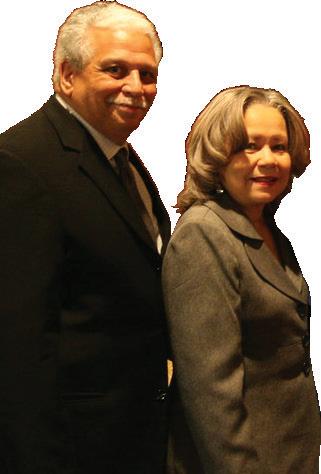
wasn’t him or Dr. Francis who is solely responsible for its success, it is the commitment to the mission to serve the community for economic growth, examine how we can fund peoples’ homes and cars and how we can help them to obtain a better way of life.” The formula still works today.
In 2024 Liberty Bank will soon celebrate 52 years of success. Mr. McDonald comments, “It
Mr. McDonald loves spending time with his family. He will celebrate 50 years of marriage to his dear wife Mrs. Rhesa O. McDonald in 2024 and plans a huge celebration with their three children and their eight grandchildren. When he celebrated 50 years as President and CEO of Liberty Bank in 2022, Alden J. McDonald, Jr. was the longest tenured African American financial executive in the country and today, as the most successful African American Bank in the country, Liberty has over a billion dollars in assets. Though he has not retired, Mr. McDonald stepped down and handed the reins of Liberty Bank to a 19-year employee of the bank, his son Todd O. McDonald. Todd McDonald says as president and CEO, it will not take him fifty years to make his first billion. He is starting with a proven formula and has a great template to follow.
Take the to
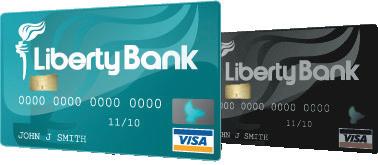
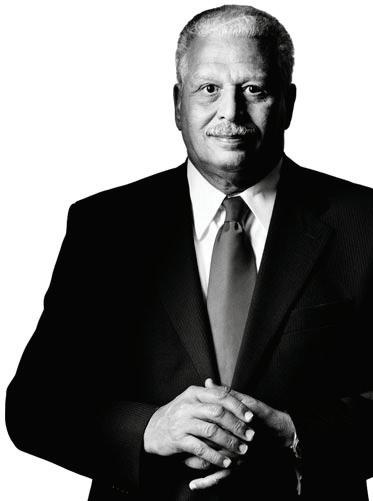
A United Philanthropic Fund at the Greater New Orleans Foundation

Founded April 1999

Dr. Robert E. Dawson, MD, MPH, President and Founder
“Planting seeds, Nurturing dreams and Growing Doctors.” “A life is a terrible thing to lose.” Dr. Robert E. Dawson, MD, MPH Celebrating 25 years!
April 25th - April 28th, 2024 Scheduled Events
1 2

Minority Health Support for HBCU Medical Training!

“The Black Bag” Serves minorities at all levels of education-SNMA
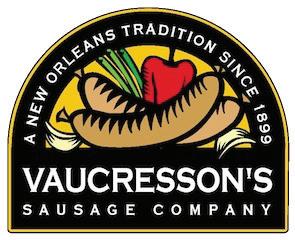
APRIL 27TH ScientiÞc Symposium Scholarships Jazz Brunch 3
APRIL 28TH
“Giving God the Glory” Tribute to Martin Luther King Jr., Coretta Scott King, Mahalia Jackson 4 “EXCELLENT FOOD, SERVICE FROM MY HOME TOWN FOLKS.” 1800 St Bernard Ave, New Orleans, LA 70116 (855) 727-3653

HBCU Medical Schools Vision New HBCU Medical Schools in Mississippi & Alabama Reception (CCAC)
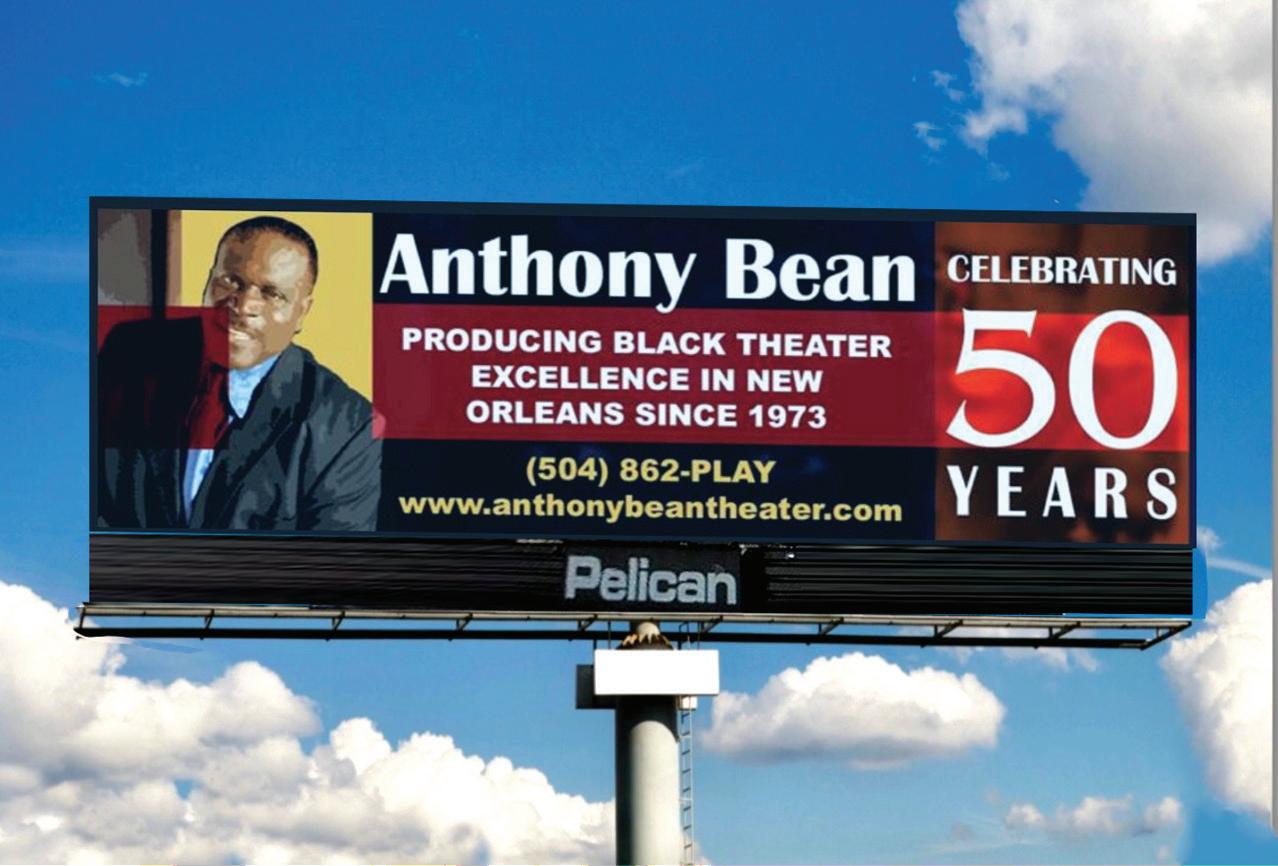
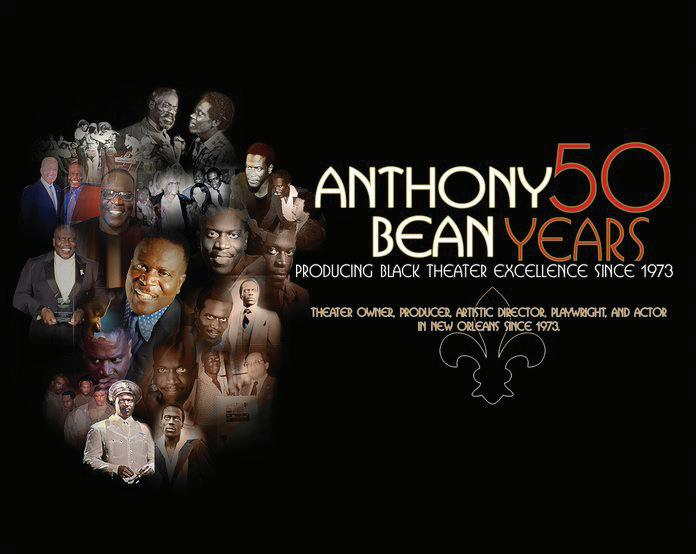
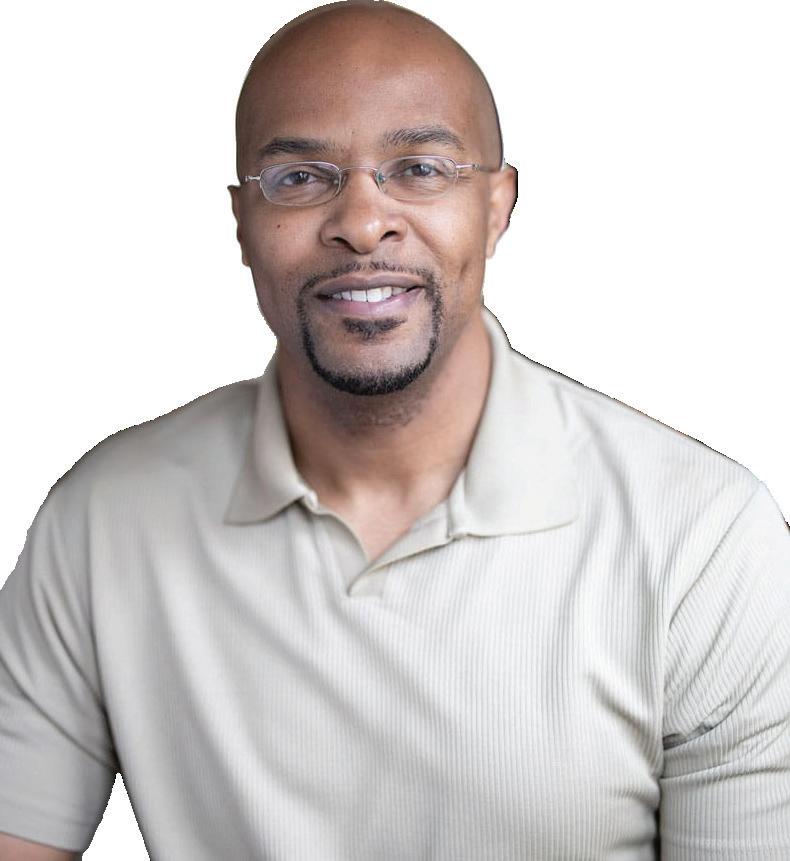
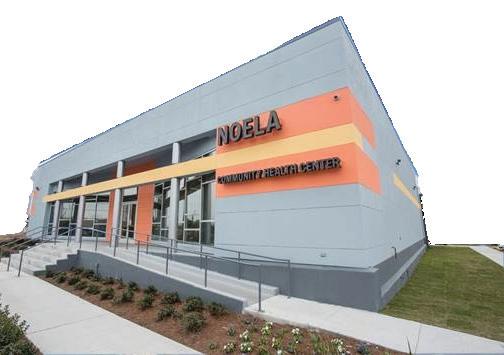
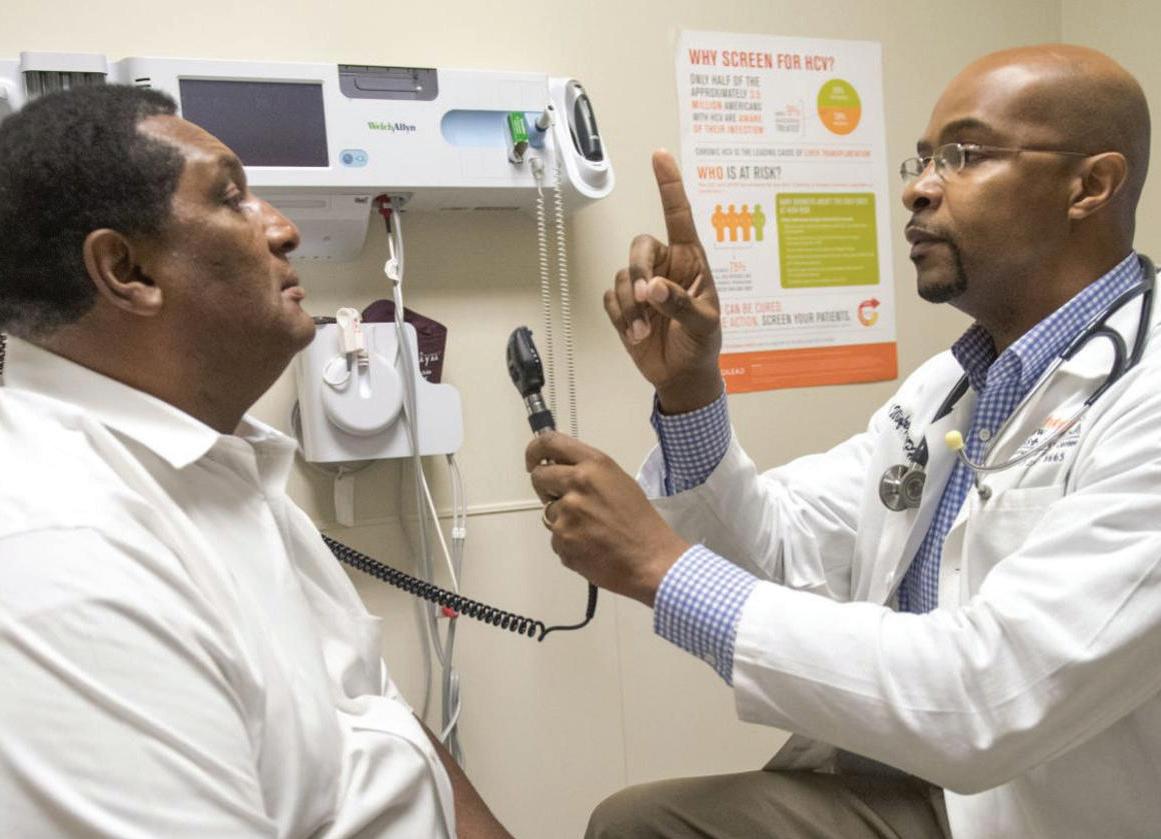
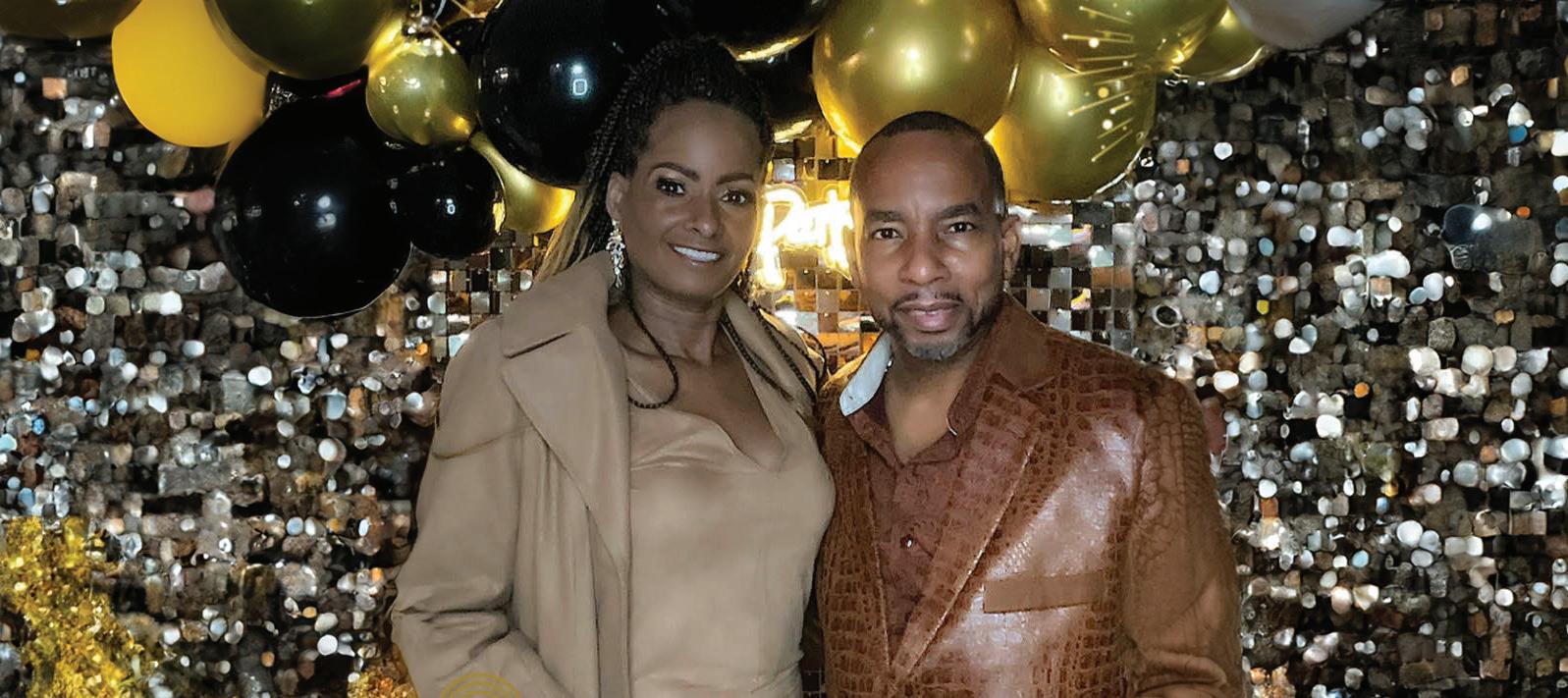
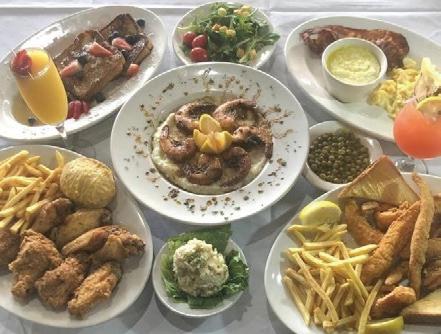
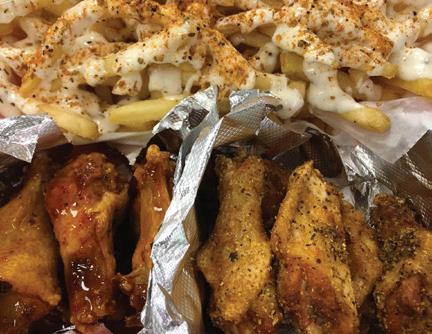

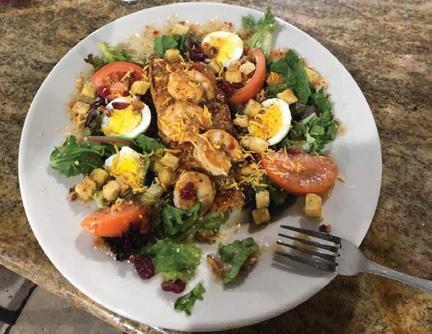
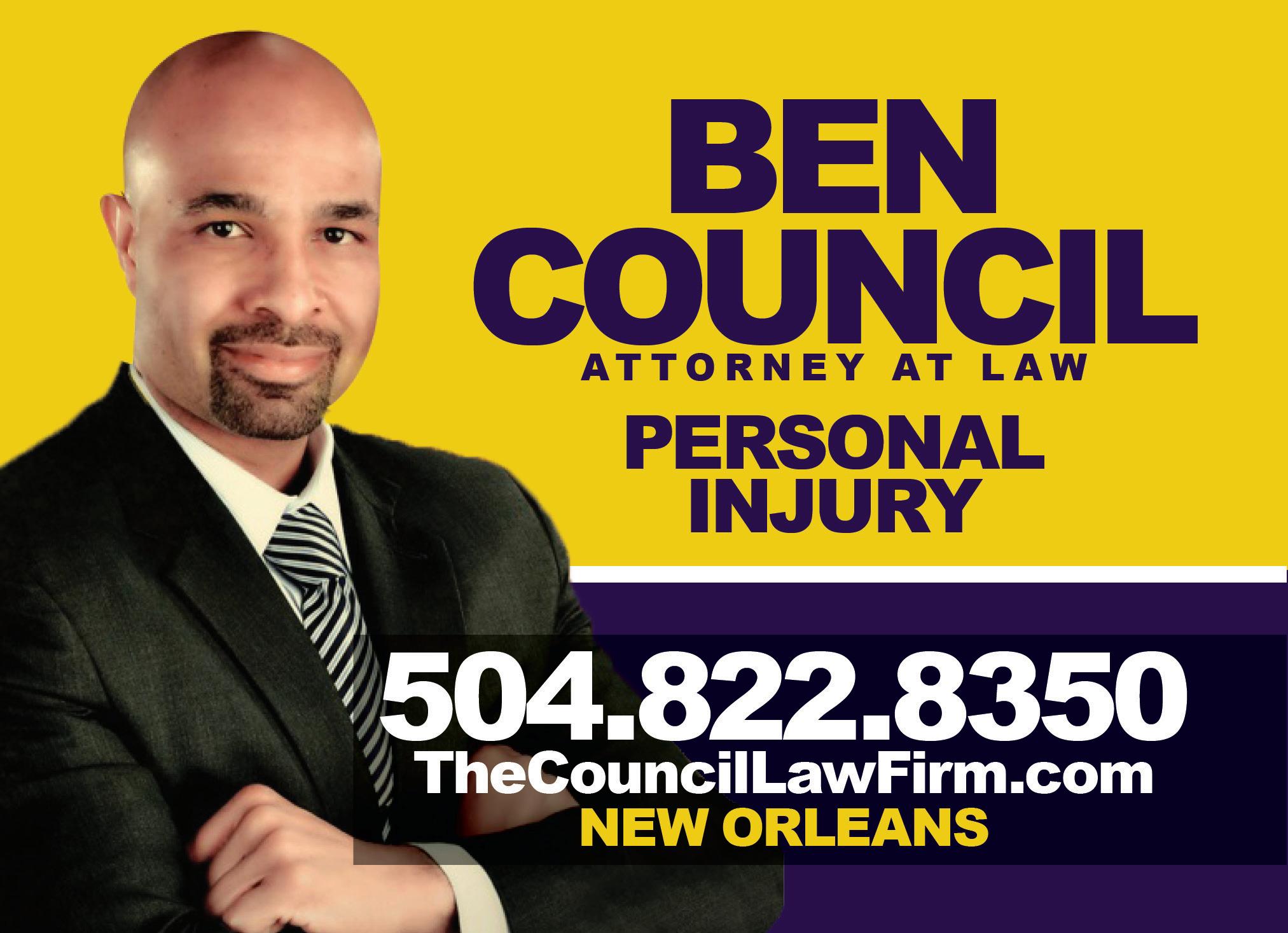

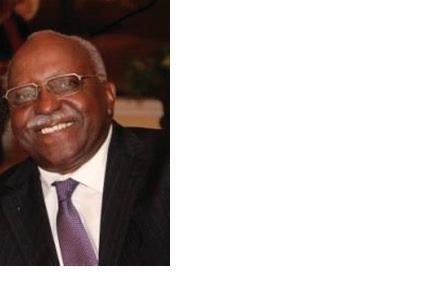
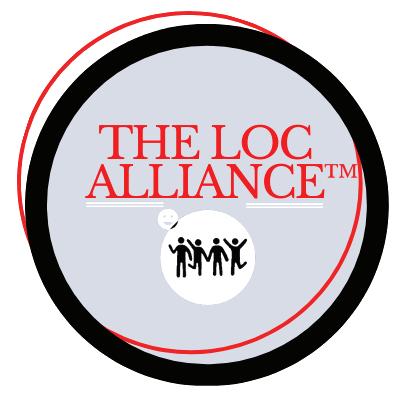


Sisters Lock Alliance in 1988 as an Educator and Products. brother, the
breaking concept in the 80s and 90s. Post-retirement
from the chemical hair industry, Makeyah embraced SisterLocksTM, a natural hair concept by Dr. JoAnne Cornwell, finding it a perfect match for her. Besides being a Brand Ambassador for SisterLocksTM, Makeyah is also “The Cutting Edge PoetTM,” impacting lives from New Orleans to Washington D.C., gaining recognition from figures like Bishop R.C. Blakes Sr. and former First Lady Hillary R. Clinton. For more info Contact: thelocalliance7@gmail.com Makeyah Daurham, Brand Ambassador for SisterLocksTM
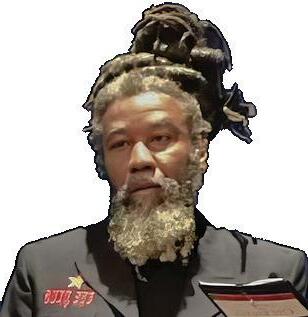
Marketa Cook, an experienced truck driver and devoted wife and mother, transitioned to SisterlocksTM after years of sporting natural hair. She abandoned weaves and wigs to revel in the freedom her locks offered. One year into this journey, her hair’s health and beauty are more exhilarating than ever. Under the mentorship of Ms. Makeyah Daurham, a distinguished SisterlocksTM Brand Ambassador, Marketa’s path evolved into a fulfilling career. Encouraged by Makeyah’s uplifting guidance,
Marketa earned certification as a SisterlocksTM Consultant. Her newfound passion led to a career shift, and she now eagerly welcomes new clients.
Inspired by her personal transformation, Marketa is committed to empowering women to embrace their natural beauty and free themselves mentally and in terms of their hair.
Contact: @Queen Naturelle, located in Zachary, LA, consultation by appt. only. (225)303-5048
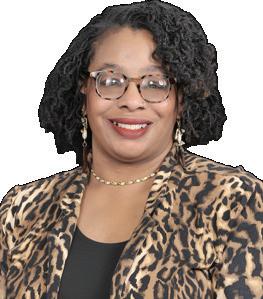
Queens of the South CollectionTM Pamela Jackson excels as the HR Director at Urgent Care and Farm Manager at her family’s JLJ Farms in Louisiana, a legacy of four generations. Under her leadership, the farm made history in 2023 as the state’s first black-owned enterprise to cultivate industrial hemp. Her agricultural commitment is further evidenced by her role on the Louisiana Hemp Promotion and Research
Advisory Board. Pamela actively contributes to Ponchatoula’s black women’s Krewe, Nizhoni, founded in 2020, celebrating the ethos “Great Women Do Great Things.” Embracing her natural hair, Pamela adopted SisterLocksTM in 2021, a decision made smoother by Makeyah Daurham’s expertise as a Brand Ambassador for SisterlocksTM, renowned for her dedication to maintaining healthy locks and scalp.
Queens of the South CollectionTM Sandra Spanks highlights the significance of hair in Black History, emphasizing its role beyond fashion to a lifestyle, especially celebrated through styles like SisterlocksTM. She stresses the need to challenge perceptions of “black hairstyles” as unprofessional, promoting the embrace of natural textures. Sandra appreciates the Natural Sisters Lock AllianceTM and Ms. Makeyah Daurham,

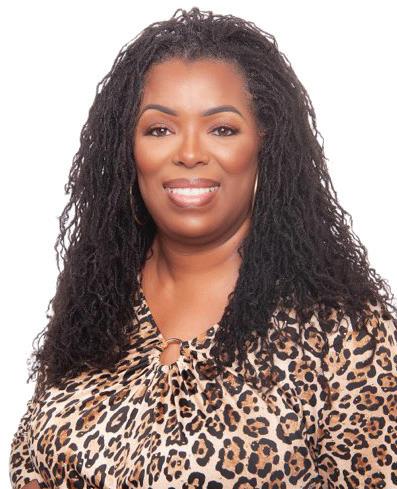
the committed Brand Ambassador for SisterlocksTM for initiating her journey with SisterlocksTM. This choice has not only liberated her but also allowed her hair to flourish, fitting seamlessly into various aspects of life, from professional to personal. Sandra views SisterlocksTM as more than a hairstyle but as an investment in self, recommending them to those ready for a transformative and freeing experience.
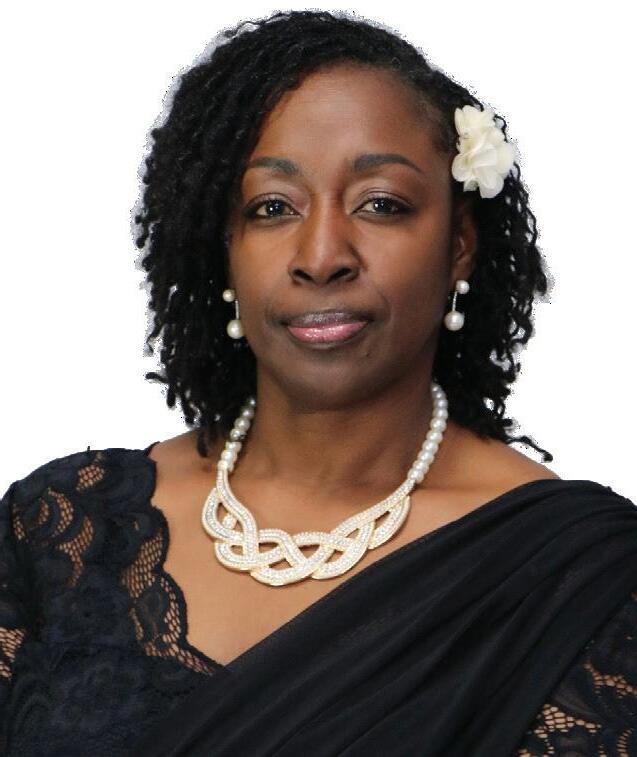



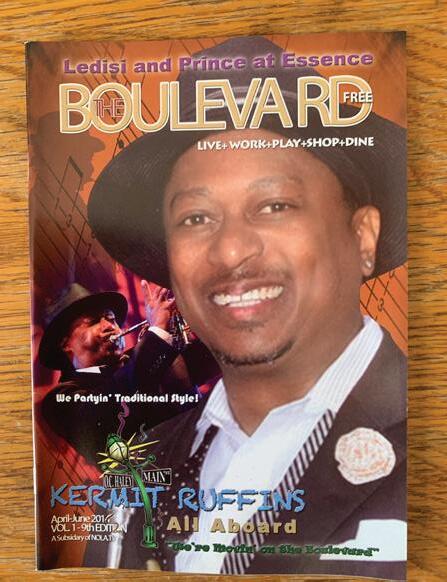


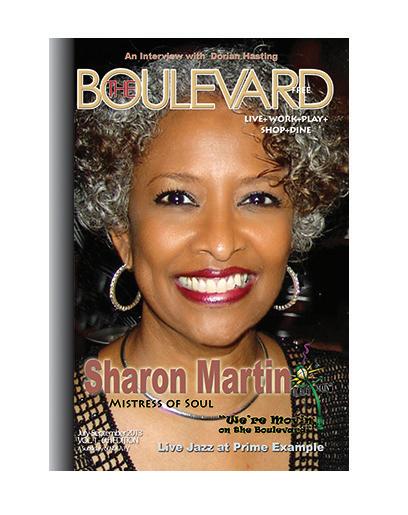
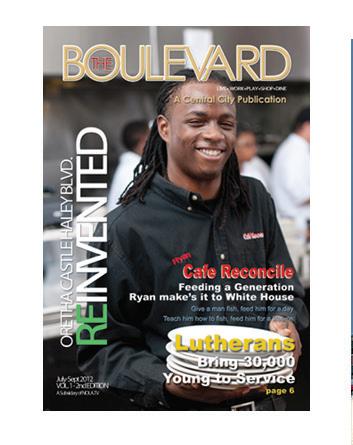
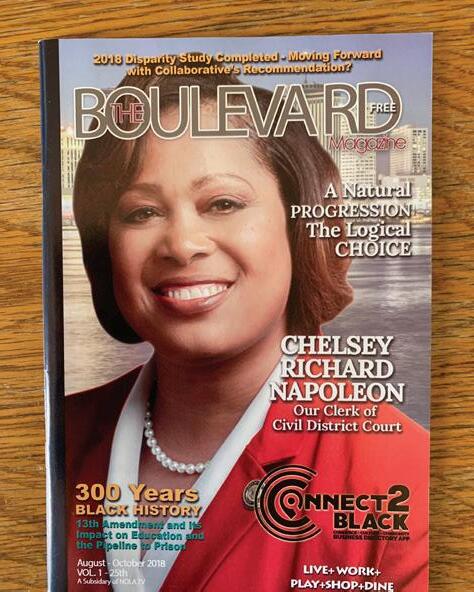
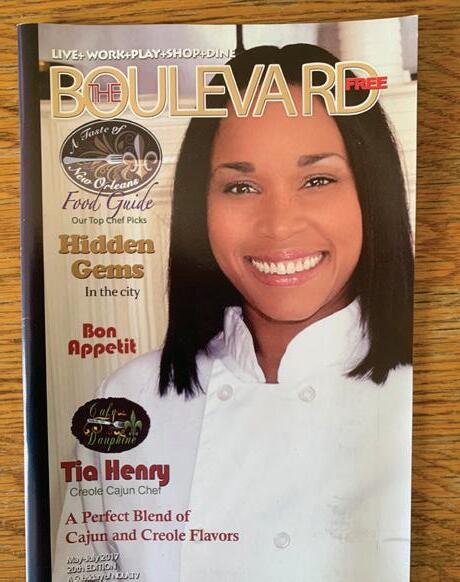
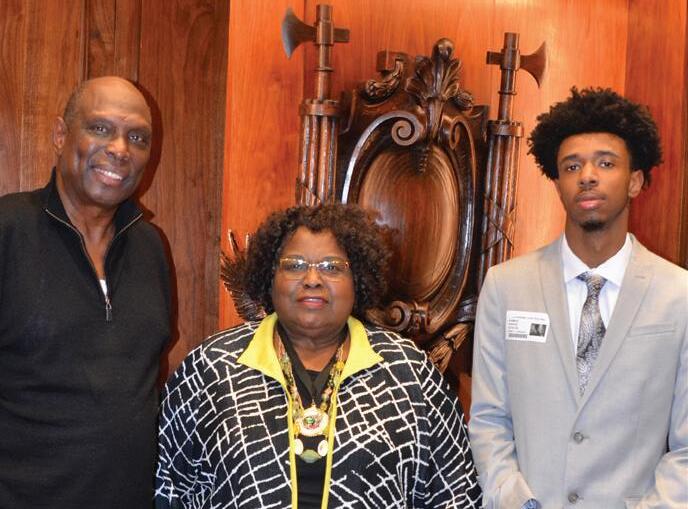

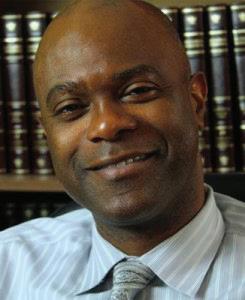
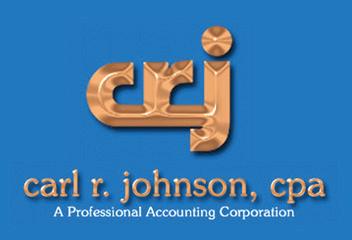

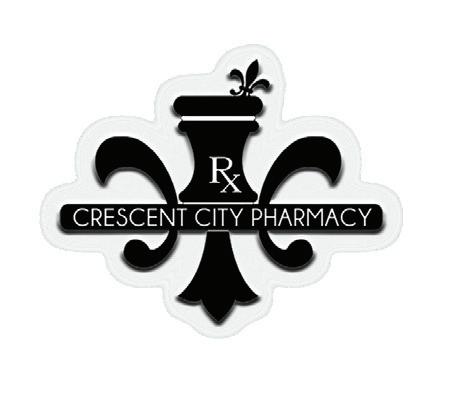


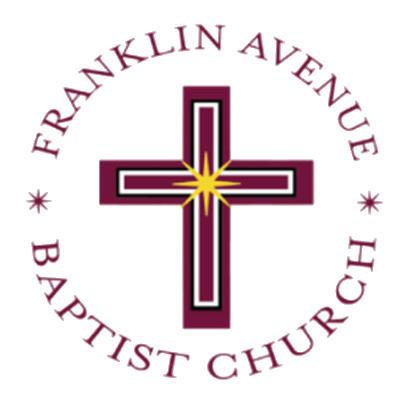

I REJOICED WITH THOSE WHO SAID TO ME, “LET US GO TO THE HOUSE OF THE LORD.” OUR FEET ARE STANDING IN YOUR GATES, O JERUSALEM. JERUSALEM IS BUILT LIKE A CITY THAT IS CLOSELY COMPACTED TOGETHER.
by Laverne Woods Dunn
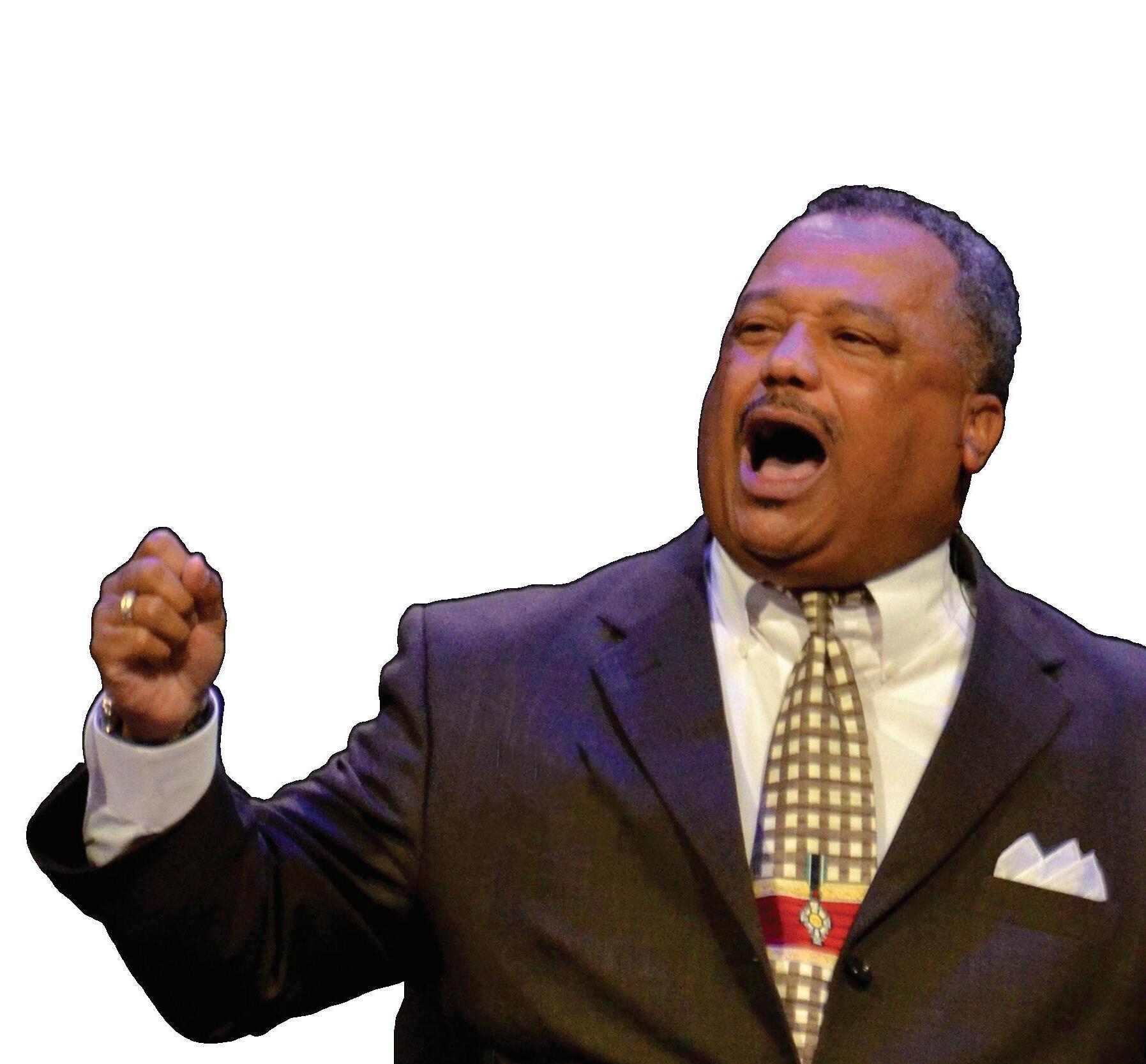
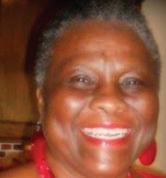
SCRIPTURE ENCOURAGES US TO REMEMBER WHAT GOD HAS DONE IN YOUR LIFE AND TALK ABOUT IT TO OUR CHILDREN AND OTHERS. I WILL EXALT YOU, MY GOD AND KING, AND PRAISE YOUR NAME FOREVER AND EVER. I WILL PRAISE YOU EVERY DAY; YES I WILL PRAISE YOU FOREVER. GREAT IS THE LORD! HE IS MOST WORTHY OF PRAISE! NO ONE CAN MEASURE HIS GREATNESS. LET EACH GENERATION TELL ITS CHILDREN OF YOUR MIGHTLY ACTS; LET THEM PROVLAIM YOUR POWER. I WILL MEDITATE ON YOUR MAJESTIC, GLORIOUS SPLENDOR AND YOUR WONDERFUL MIRACLES.
PSALMS 145:1-5 NLT

8 Fresh Food Assasin
1900 N Claiborne Ave, New Orleans, LA 70116
504.224.2628
Asante Foundation
2635 Aubry St.
New Orleans, LA 70119
504.416.9699
Ashe’ Cultural Arts Center
1712/1724 O.C. Haley Blvd.
New Orleans, LA 70113
504.569.9070
Beaucoup Eats
2323 Canal St, New Orleans, LA 70119
504.603.4888
Plumbing, Heating & A/C
419 S Salcedo St #2, New Orleans, LA 70119
Ben Council
Attorney at Law
419 S Salcedo St #2, New Orleans, LA 70119
Bright Moments
2249 C Oretha Castle Haley Blvd. New Orleans, LA 70113
504.592.1800
Cafe’ Reconcile
1631 O. C. Haley Blvd.
New Orleans, LA 70113
504.568.1157
Carney Auto Title & So. Security School Inc. 2518 Tulane Avenue
New Orleans, LA 70119
504-352-6038
Central City Economic Opportunity Corporation 2020 Jackson Ave
New Orleans, LA 70113
504.524.3484
Central City Senior Program
2010 Phillip Street
New Orleans, LA 70113
504.524.3484 ext.116
Charles F. Webb
6600 Plaza Dr. #210 New Orleans, La 70127
504.242.1781
Cresent City Pharmacy
2240 Simon Bolivar Ave. Ste A New Orleans, LA 70113
504.267.4100
Community Connection Programs, Inc.
1332 O. C. Haley Blvd.
New Orleans, LA 70113
504.522.4304
Connect 2 Black 2635 Aubry St. New Orleans, LA 70119
504.416.9699
Dryades YMCA
2220 Oretha Castle Haley Blvd. New Orleans, LA 70113
504.299.4310
1307 Oretha Castle Haley Blvd. New Orleans, LA 70113
504.708.8376
Franklin Avenue
Baptist Church
7 O’Clock Dental 2101 So. Claiborne Ave, Ste F
New Orleans, LA 70113
504.309.3077
Good Work Network
2024 O. C. Haley Blvd.
New Orleans, LA 70113
504.309.2073
Good Look Creative goodlookcreative.com
504.383.4426
Gulf Coast Housing Partnership
1610-A O. C. Haley Blvd. New Orleans, LA 70113
504.525.2505
HOPE Community Credit Union
1726 O.C. Haley Blvd.
New Orleans, LA 70113
504.585.2858
Hot Spot Barber and Beauty Salon
1416 Simon Bolivar Ave. New Orleans, LA 70113
504.581.9633
Juvenile Justice Project of LA
2018 O. C. Haley Blvd. New Orleans, LA 70113
504.522.5437
Liberty Bank 6600 Plaza Drive
New Orleans, LA 70127
800-883-3943
Mackie One Construction MackieOneConstruction.com
504.821.1530
Majestic Mortuary Services 1833 Oretha Castle Haley Blvd. New Orleans, LA 70113
504.523.5872
Natural Sisters Lock Alliance 11020 Roger Dr
New Orleans, LA 70127
504.344.8360
New Orleans Driving School 2518 Tulane Avenue New Orleans, LA 70119
504-821-5334
New Orleans Jazz Orchestra/Jazz Market 1436 Oretha Castle Haley, Blvd. New Orleans, LA 70113
504.301.9006
NOLA.Tv
2635 Aubry St. New Orleans, LA 70119
504.416.9699
O.C. Haley Blvd. Merchants & Business Association
1712 O.C. Haley Blvd, Unit 302 New Orleans, LA 70113
504.528.1806
Piety & Desire Chocolate 2727 S. Broad Street New Orleans, LA 70125
Richard Disposal Inc. 11600 Old Gentilly Road New Orleans, LA 70129
504.241.2142
Smiley’s Grill New Orleans 3716 Downman Rd, New Orleans, LA 70126
504. 248.7270
Swanson & Associates, Inc 5301 Elysian Fields Avenue New Orleans, LA 70122
504.821.0303
Up&Adam Eatz
3903 Canal St, New Orleans, LA 70119
504.708.7237
Vyoone’s Restaurant
412 Girod St. New Orleans, LA 70130
504.518.6007



